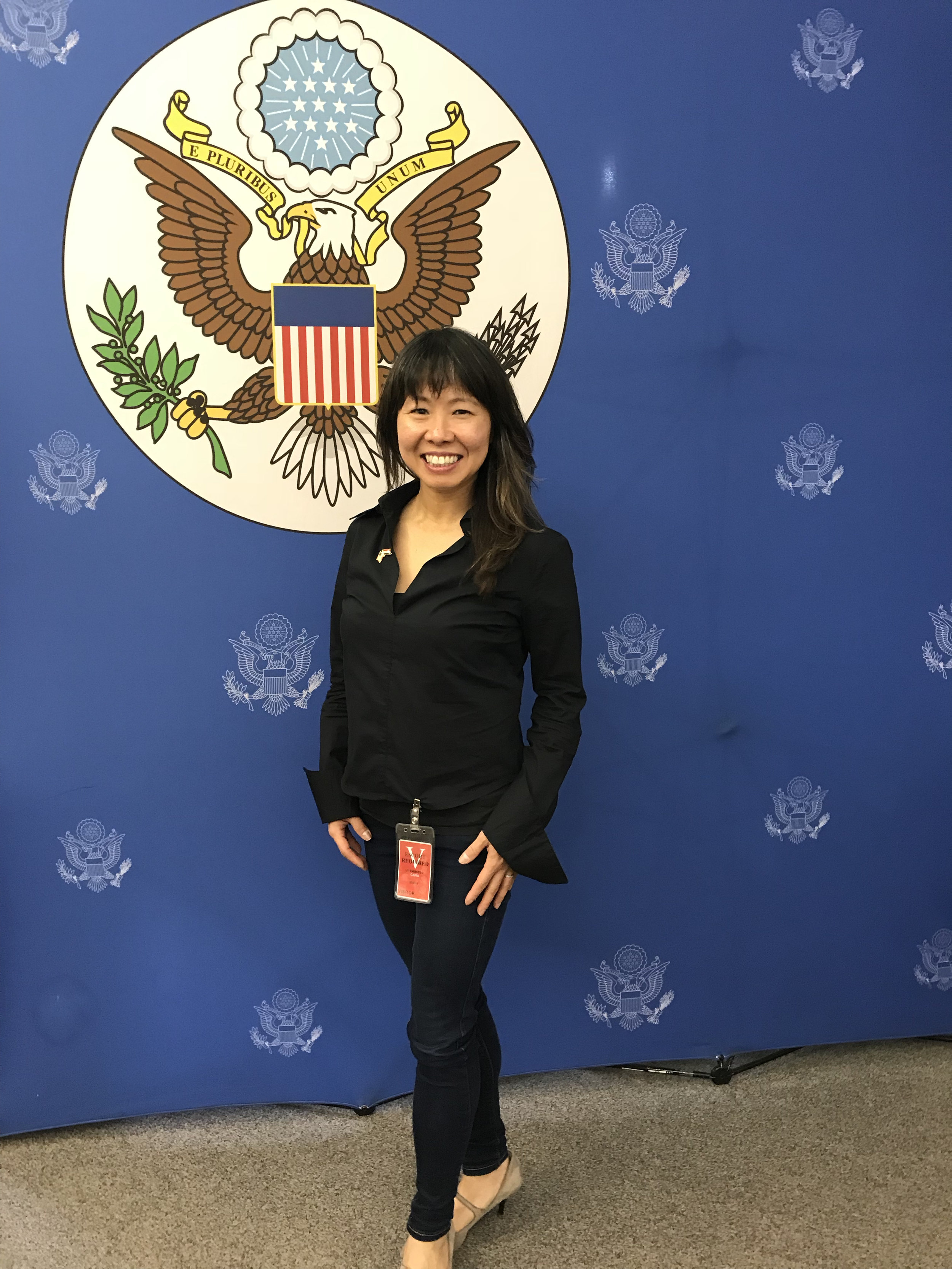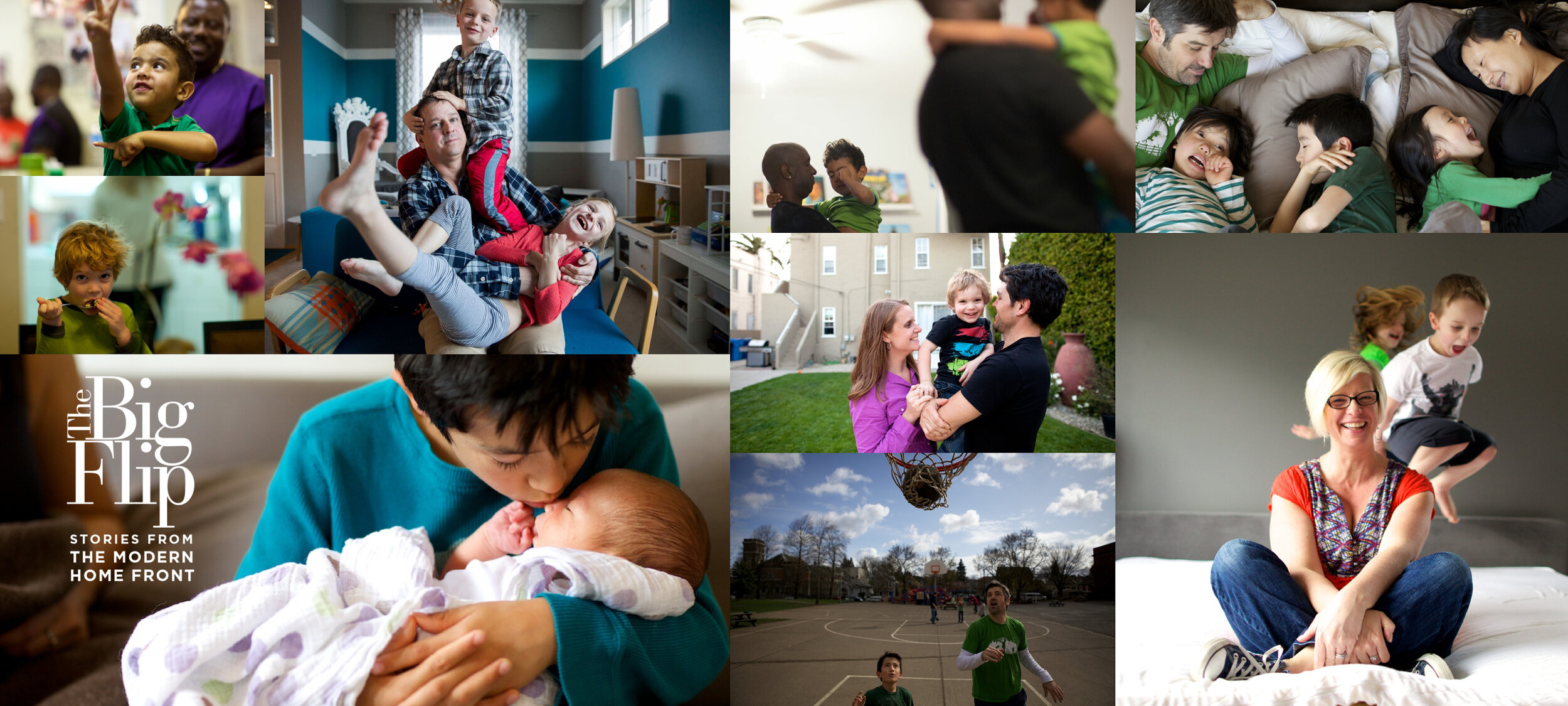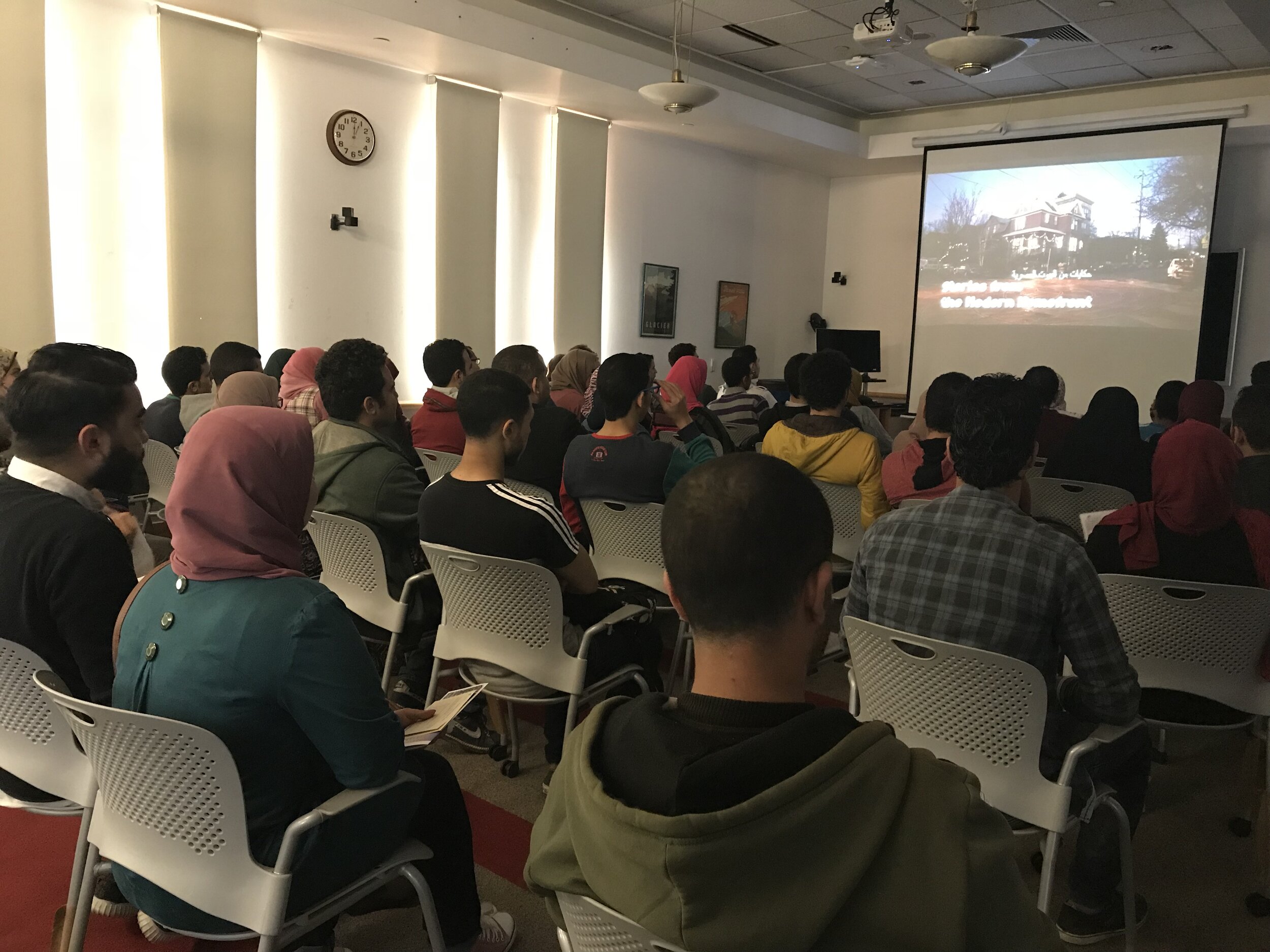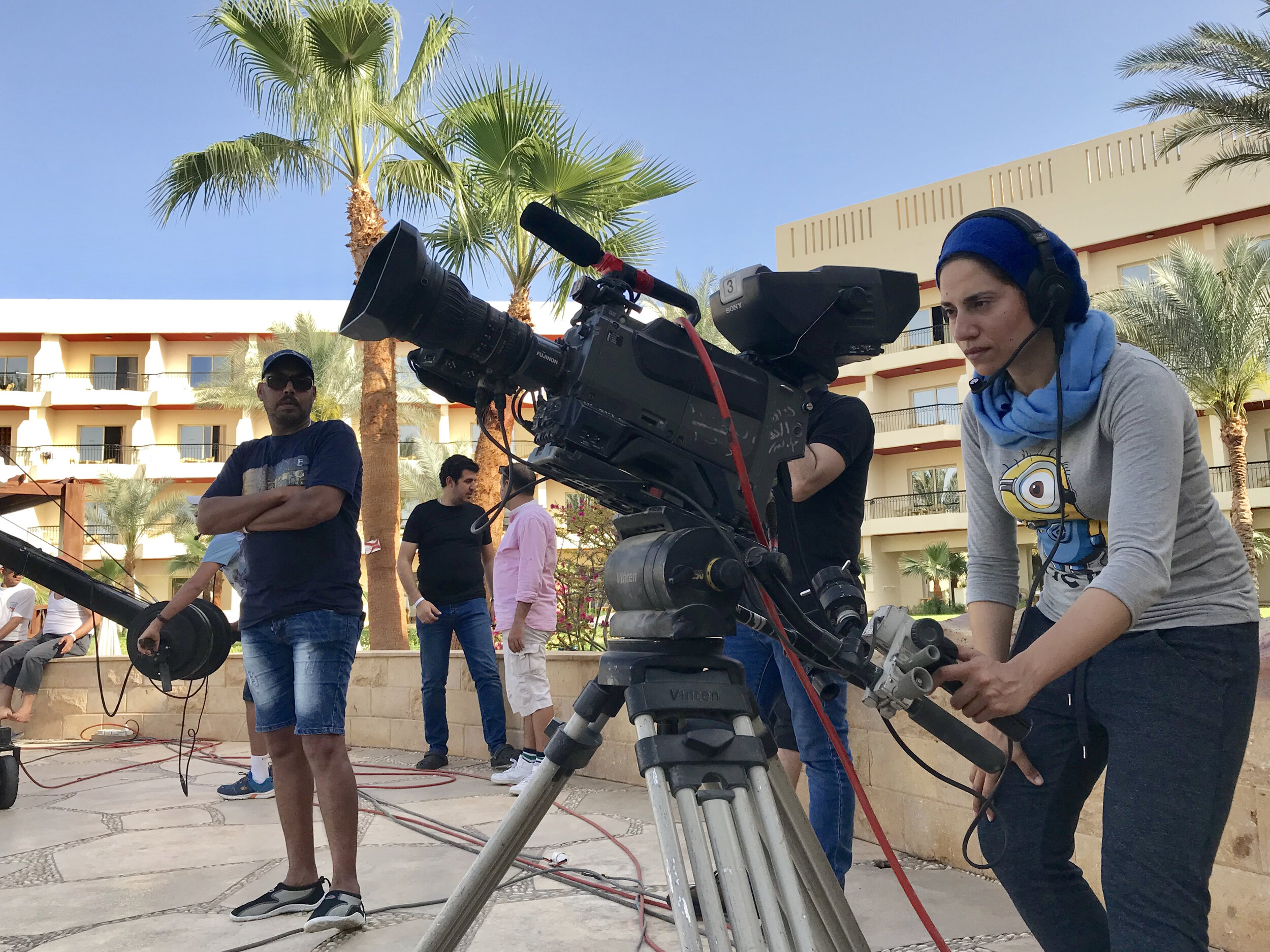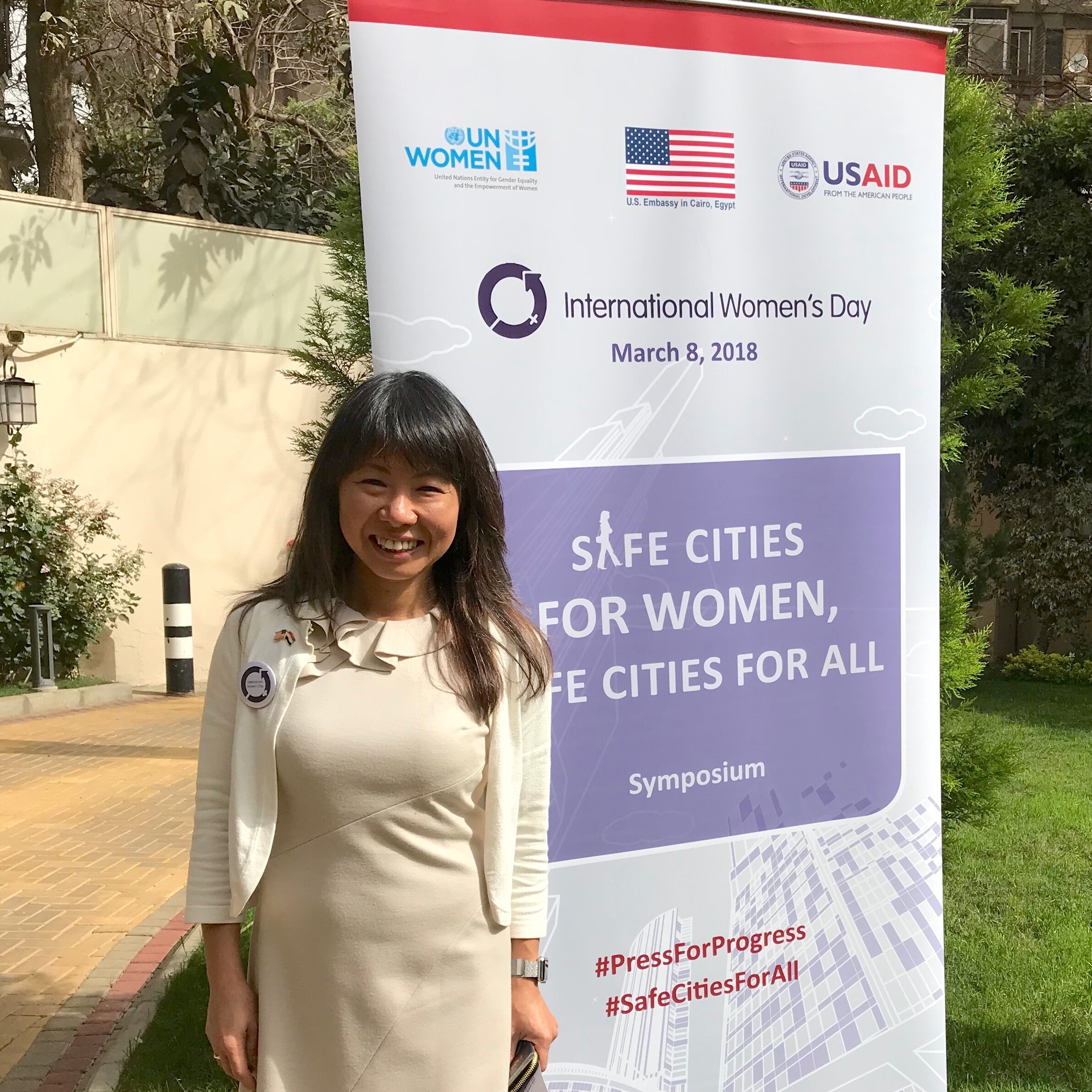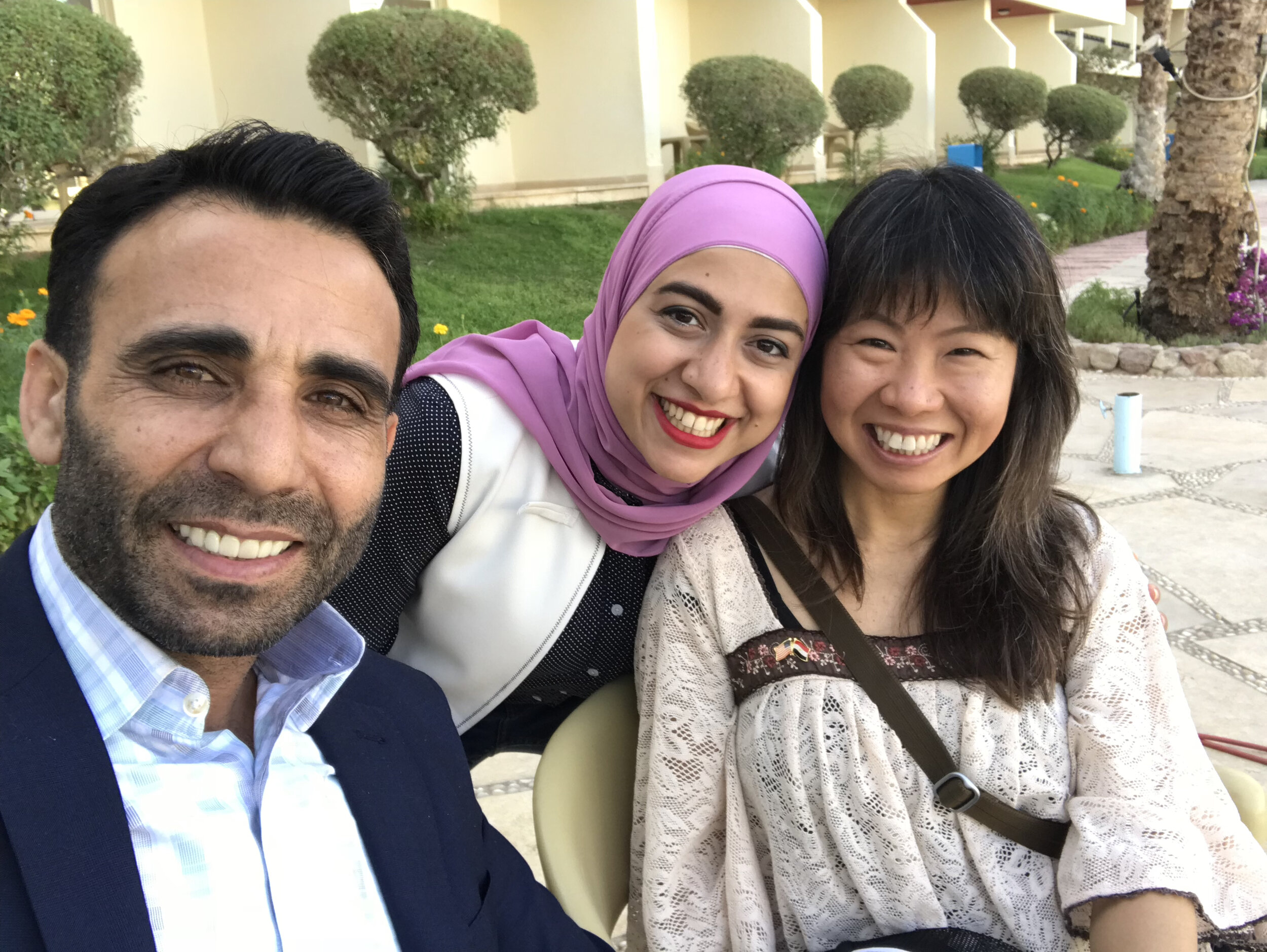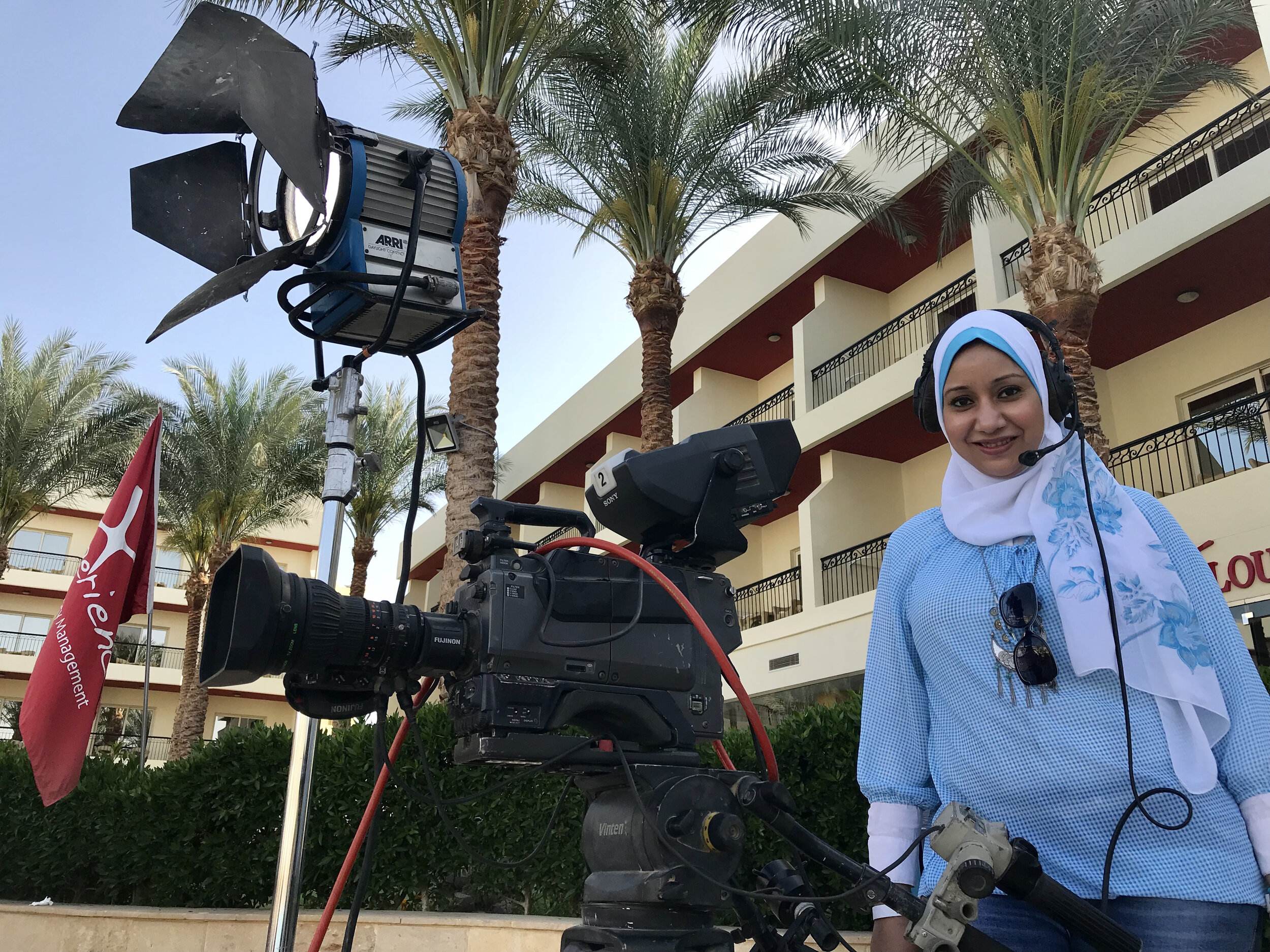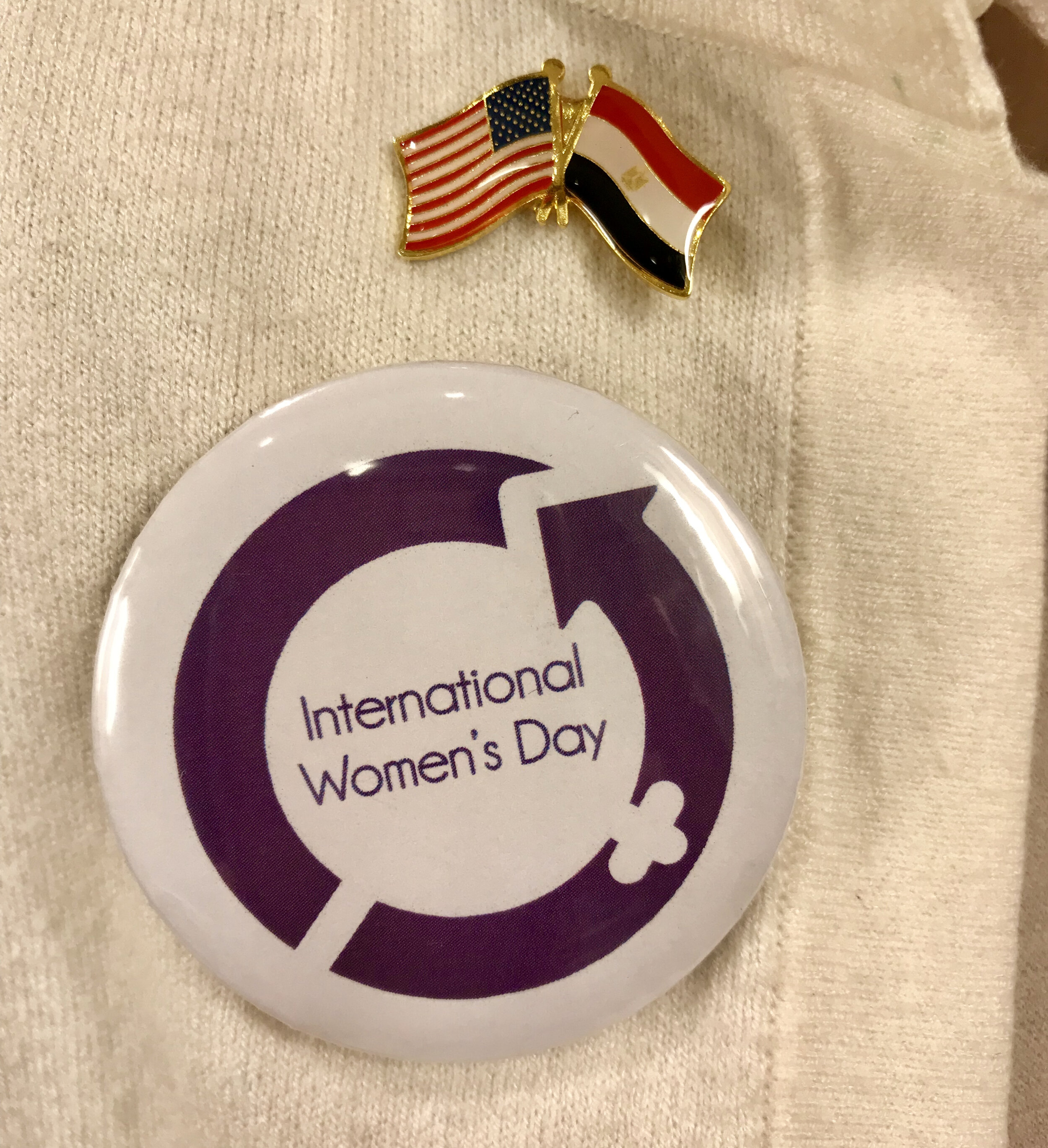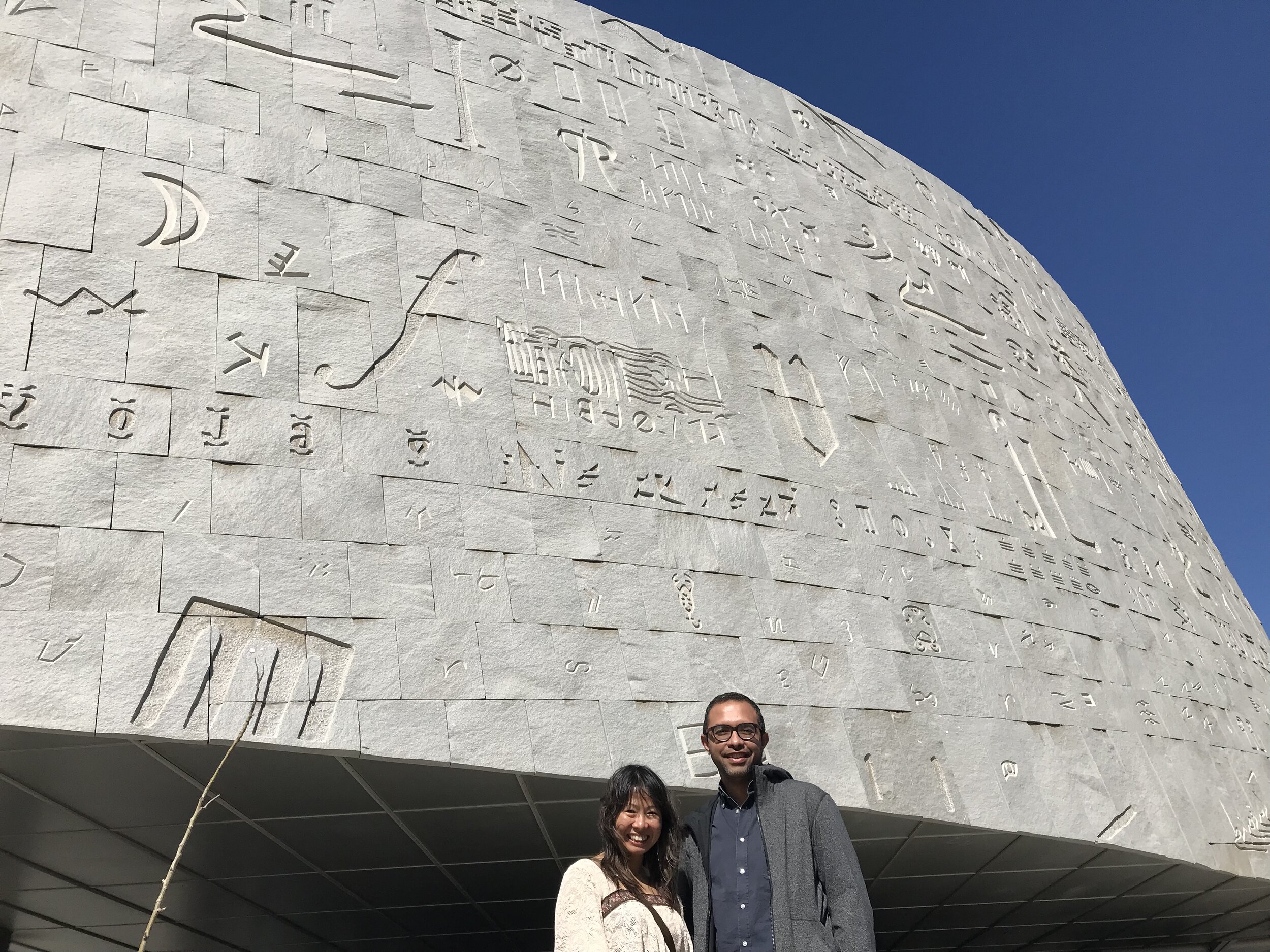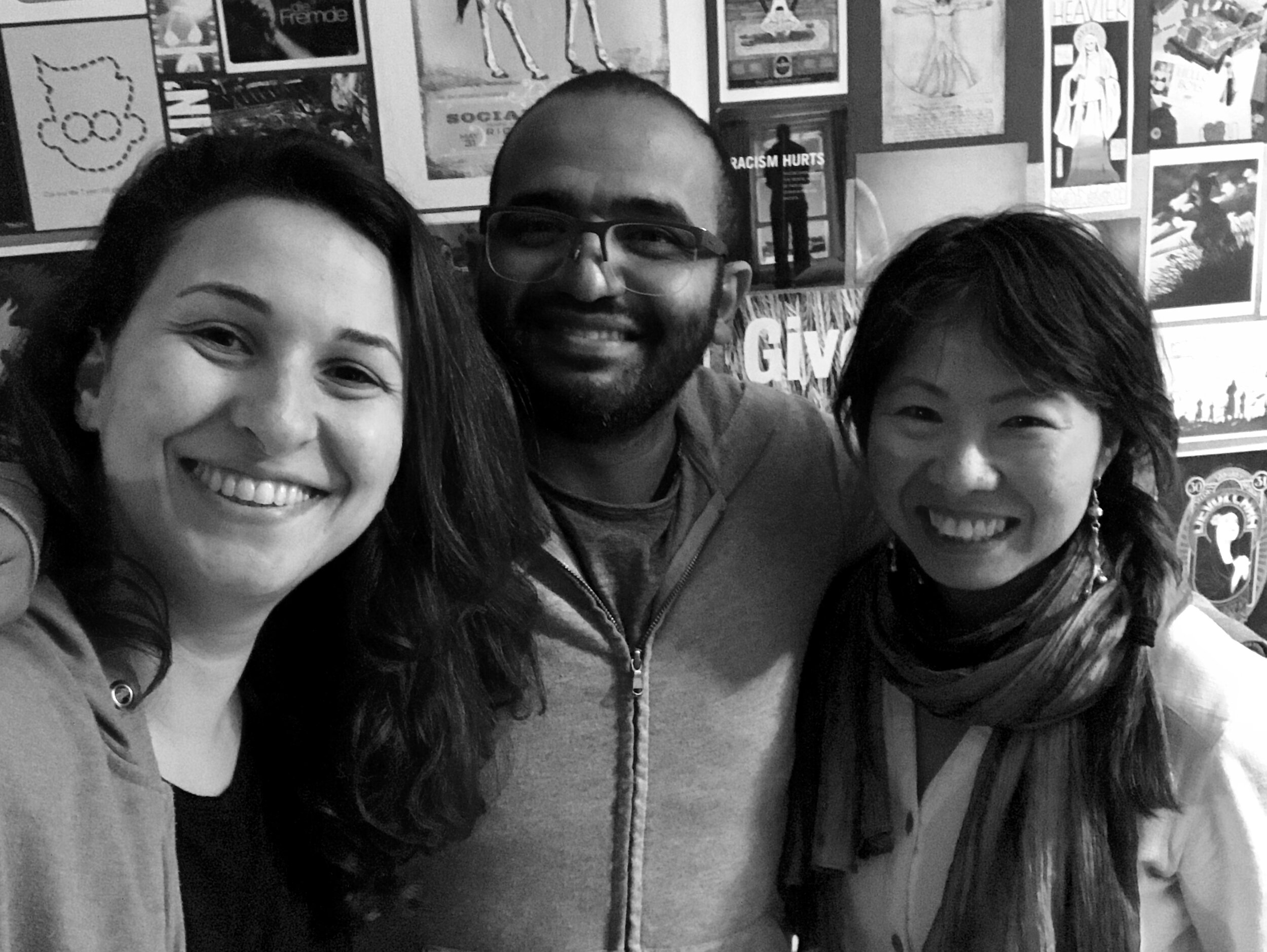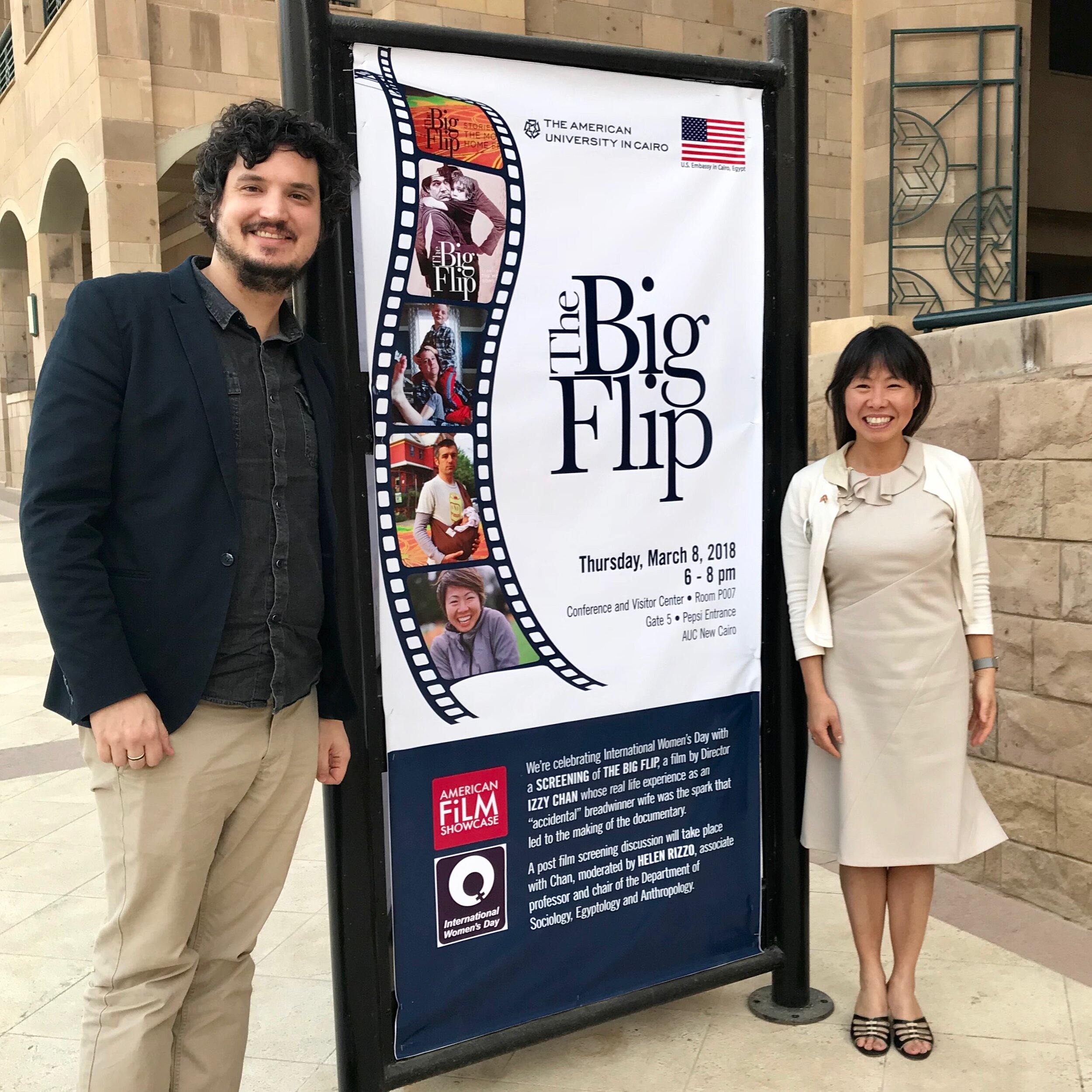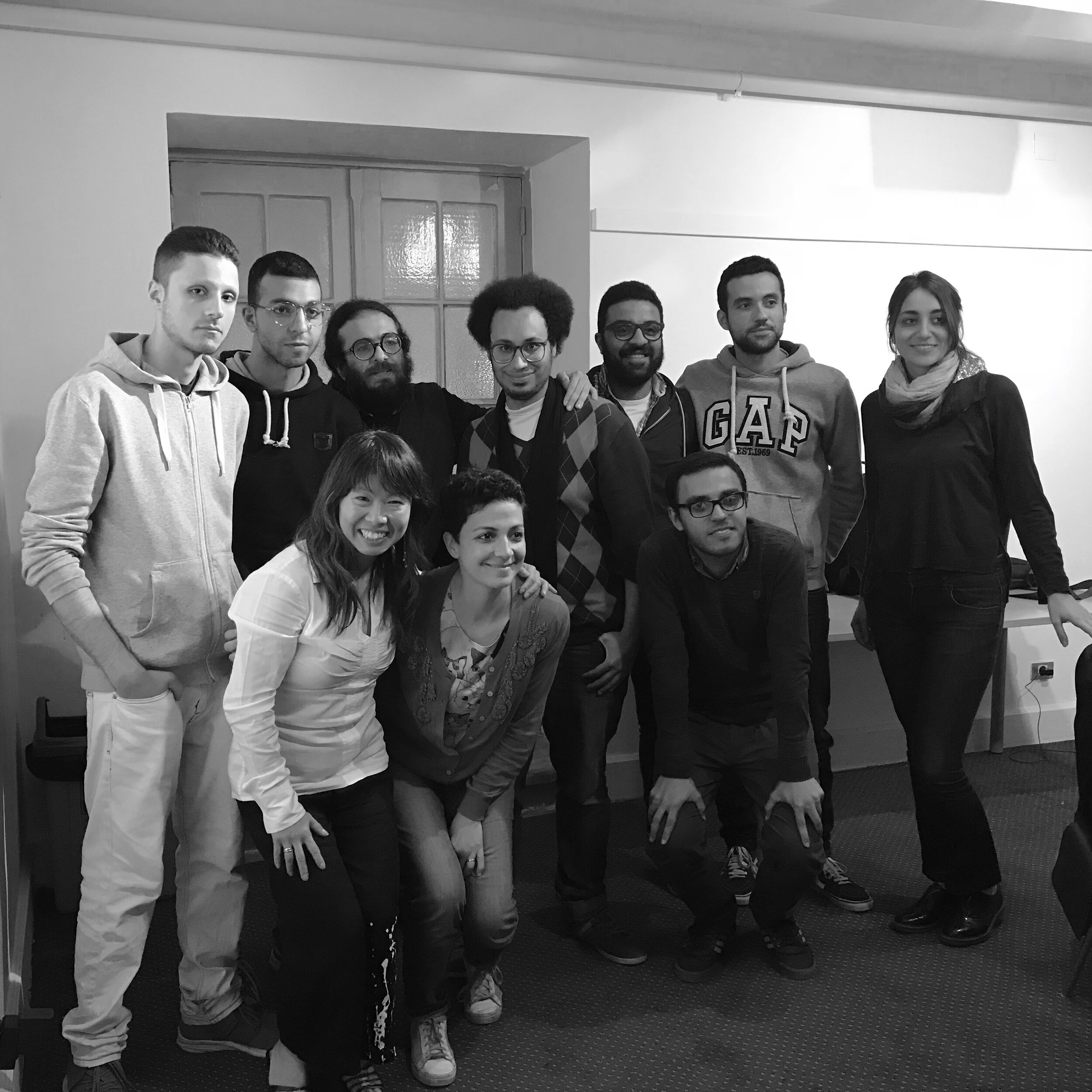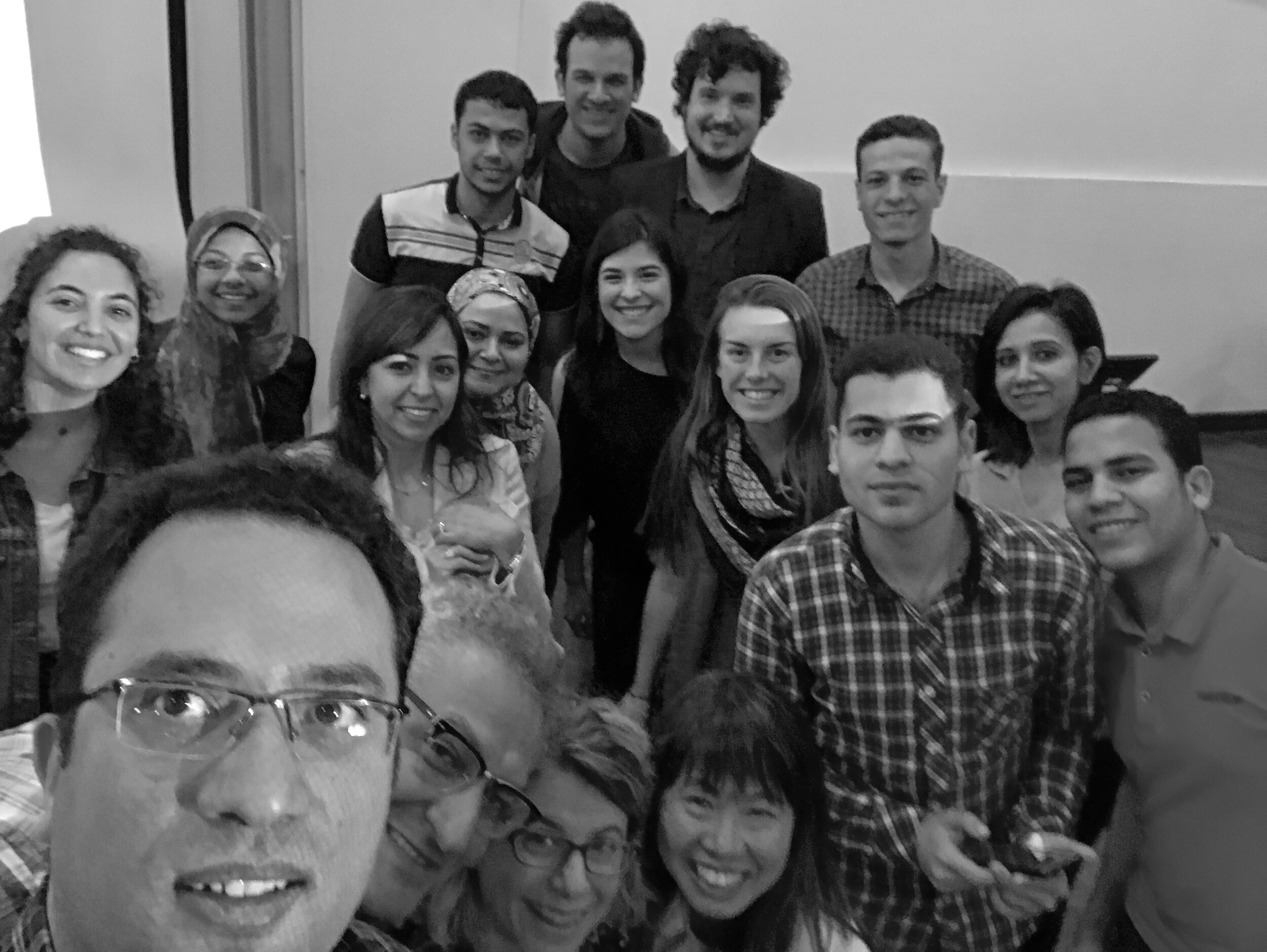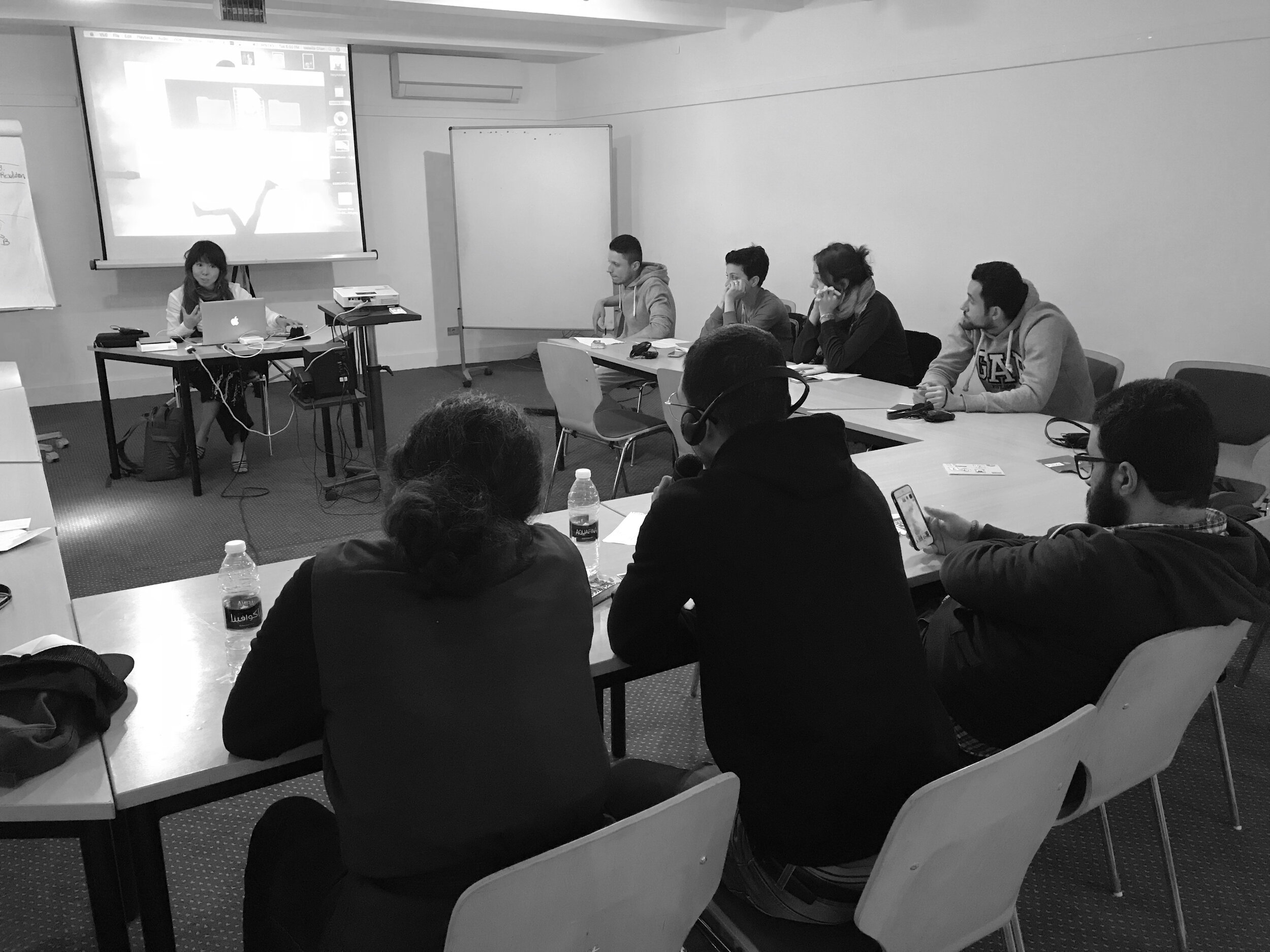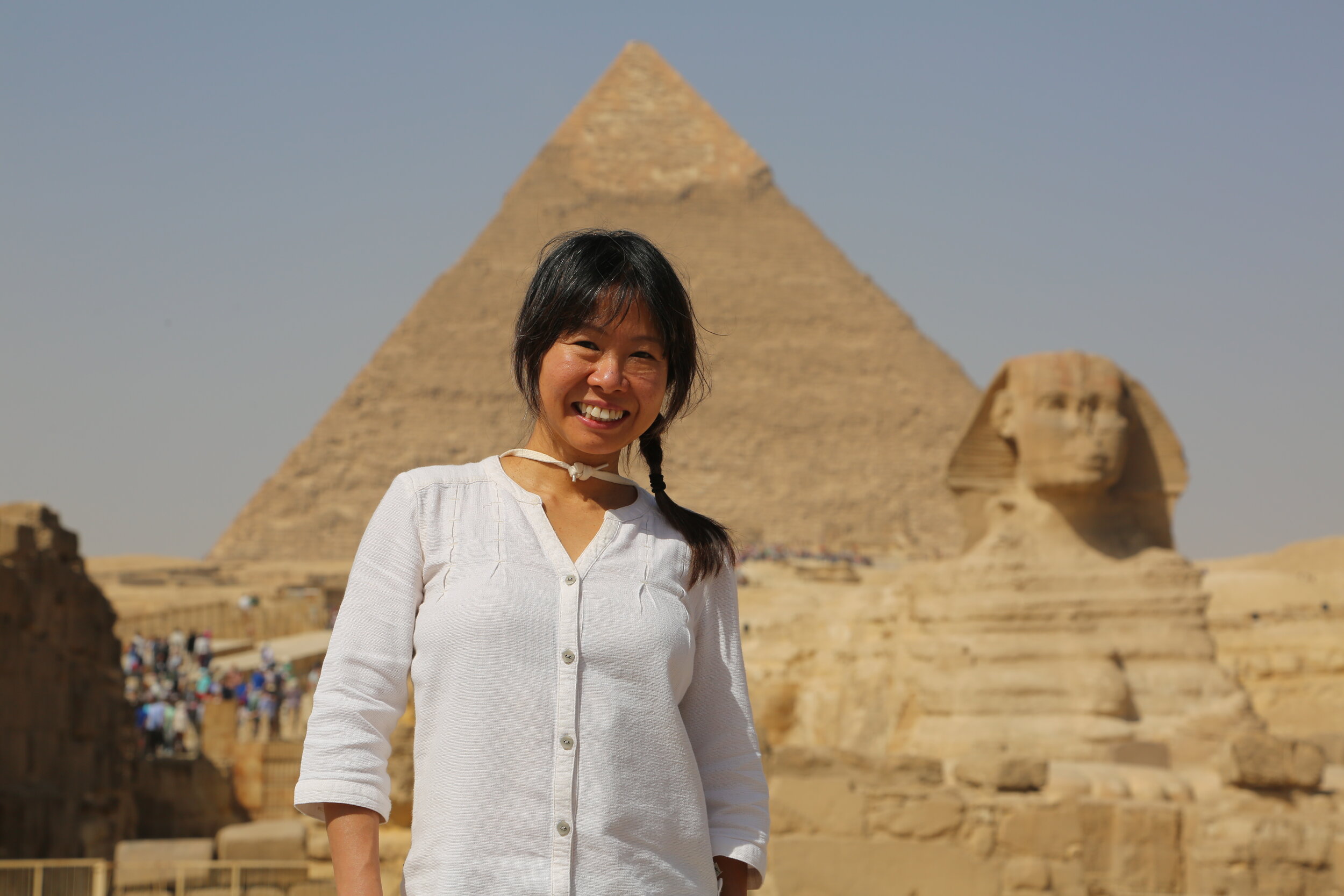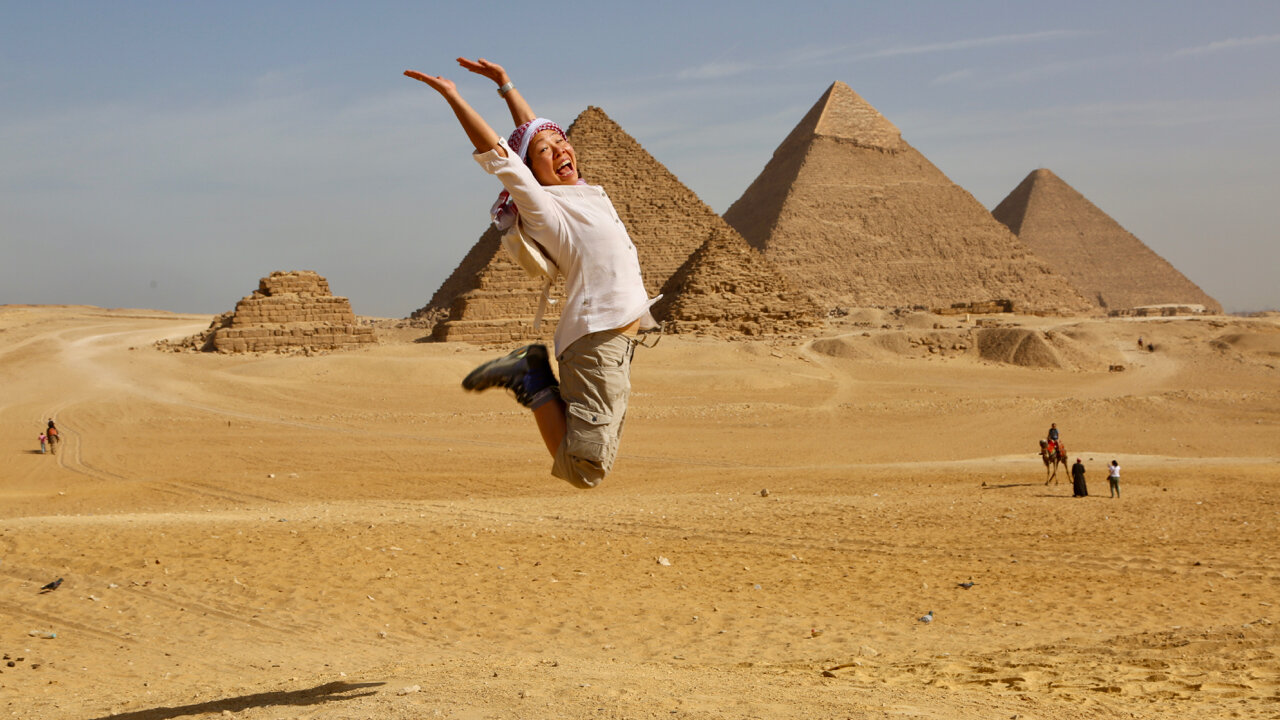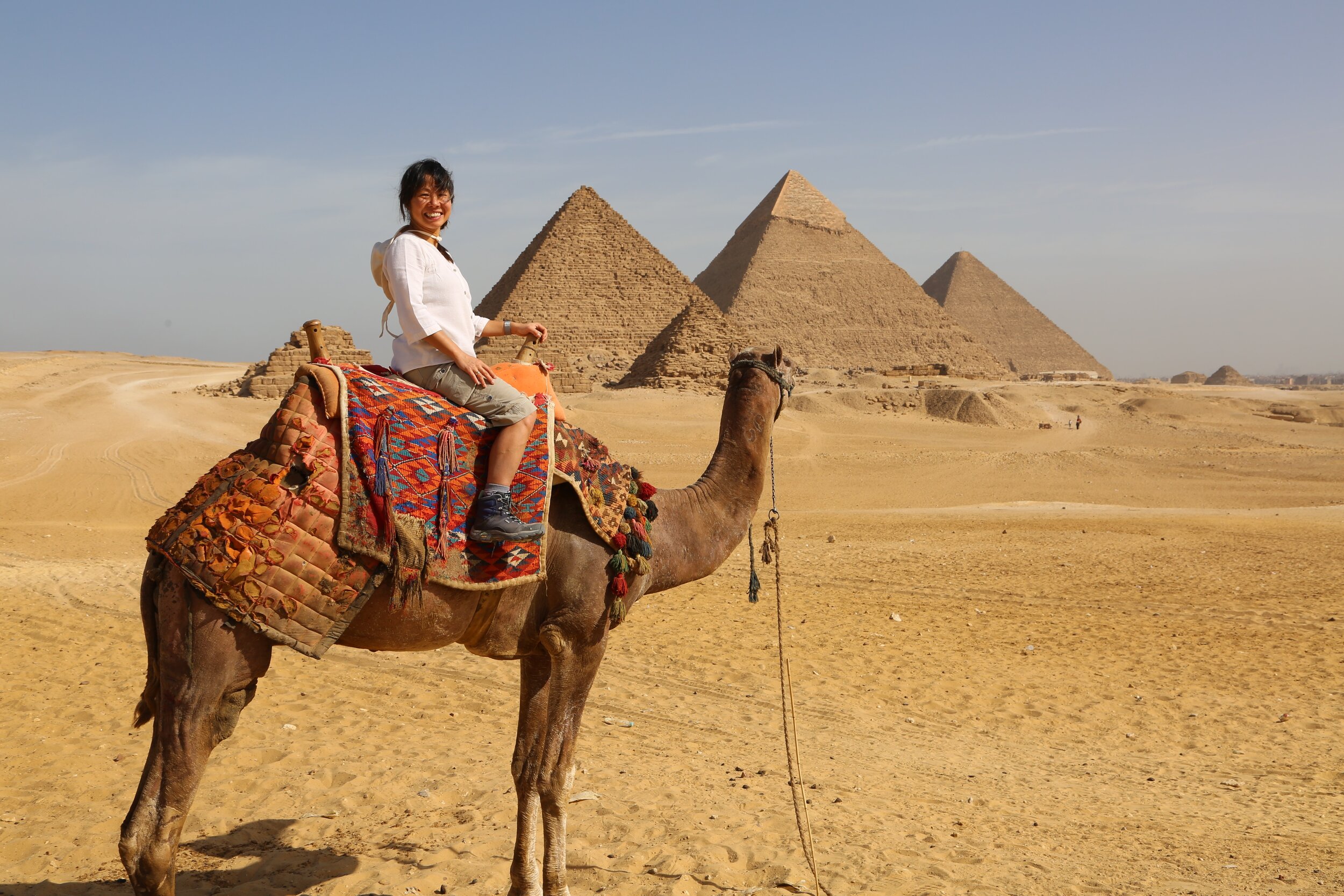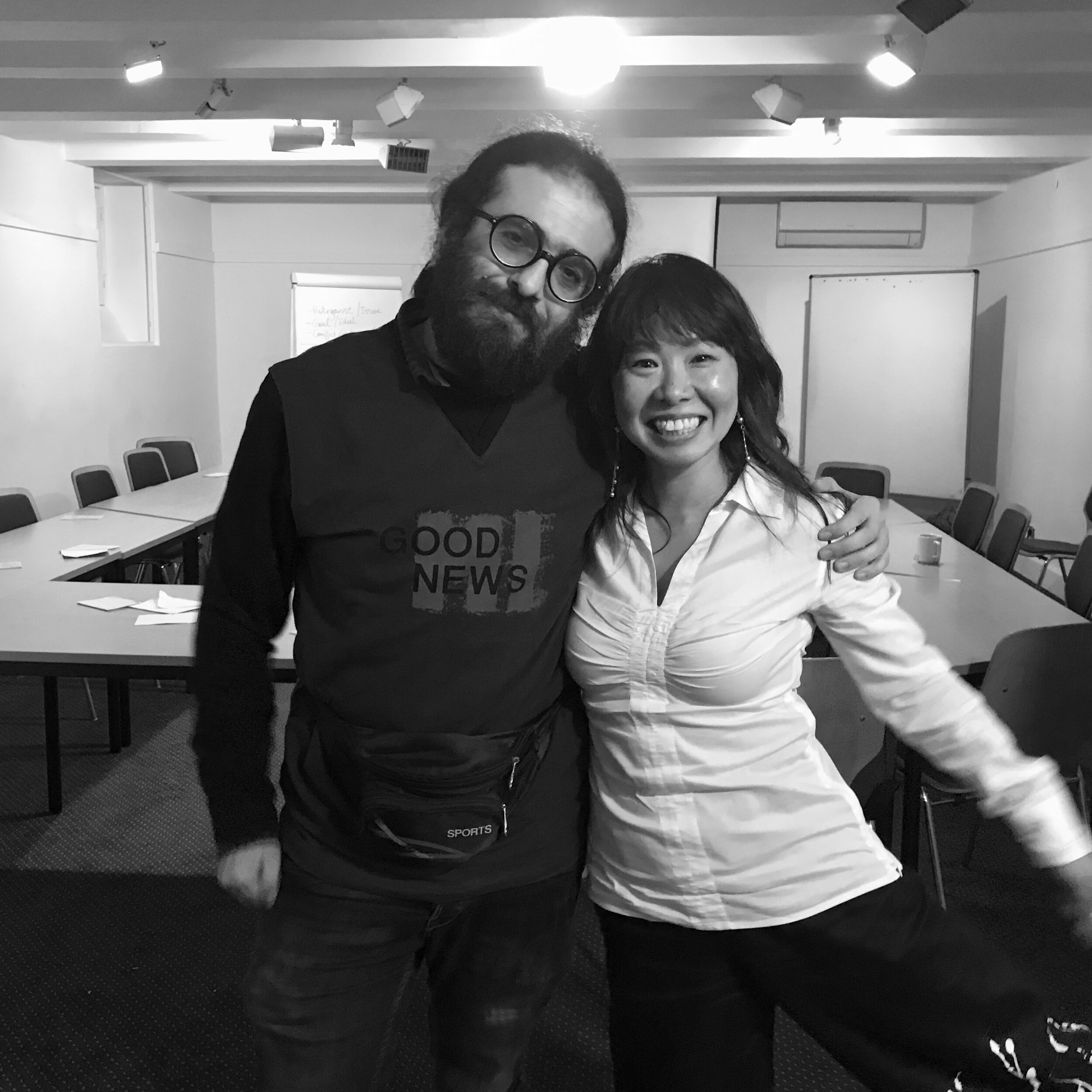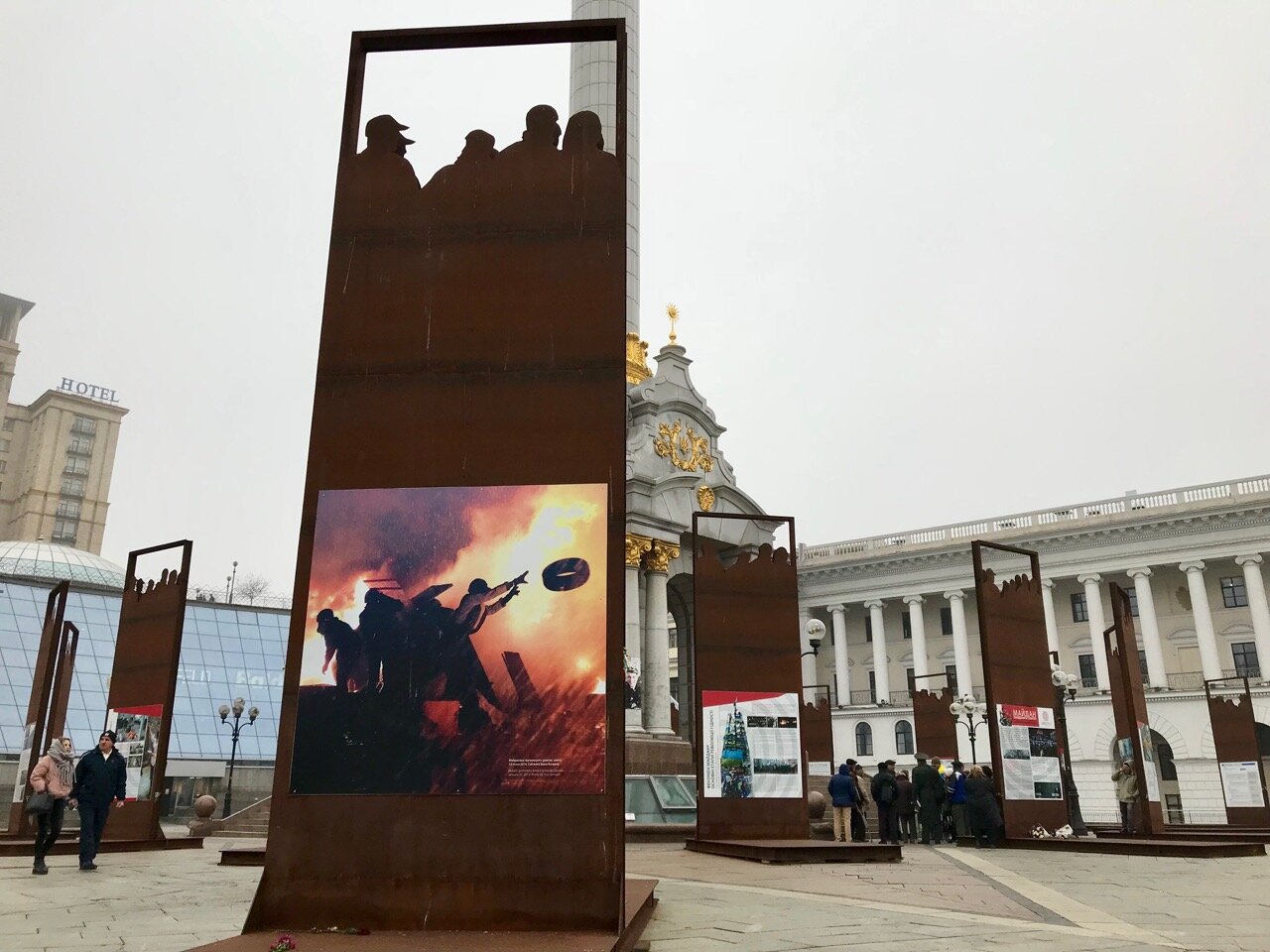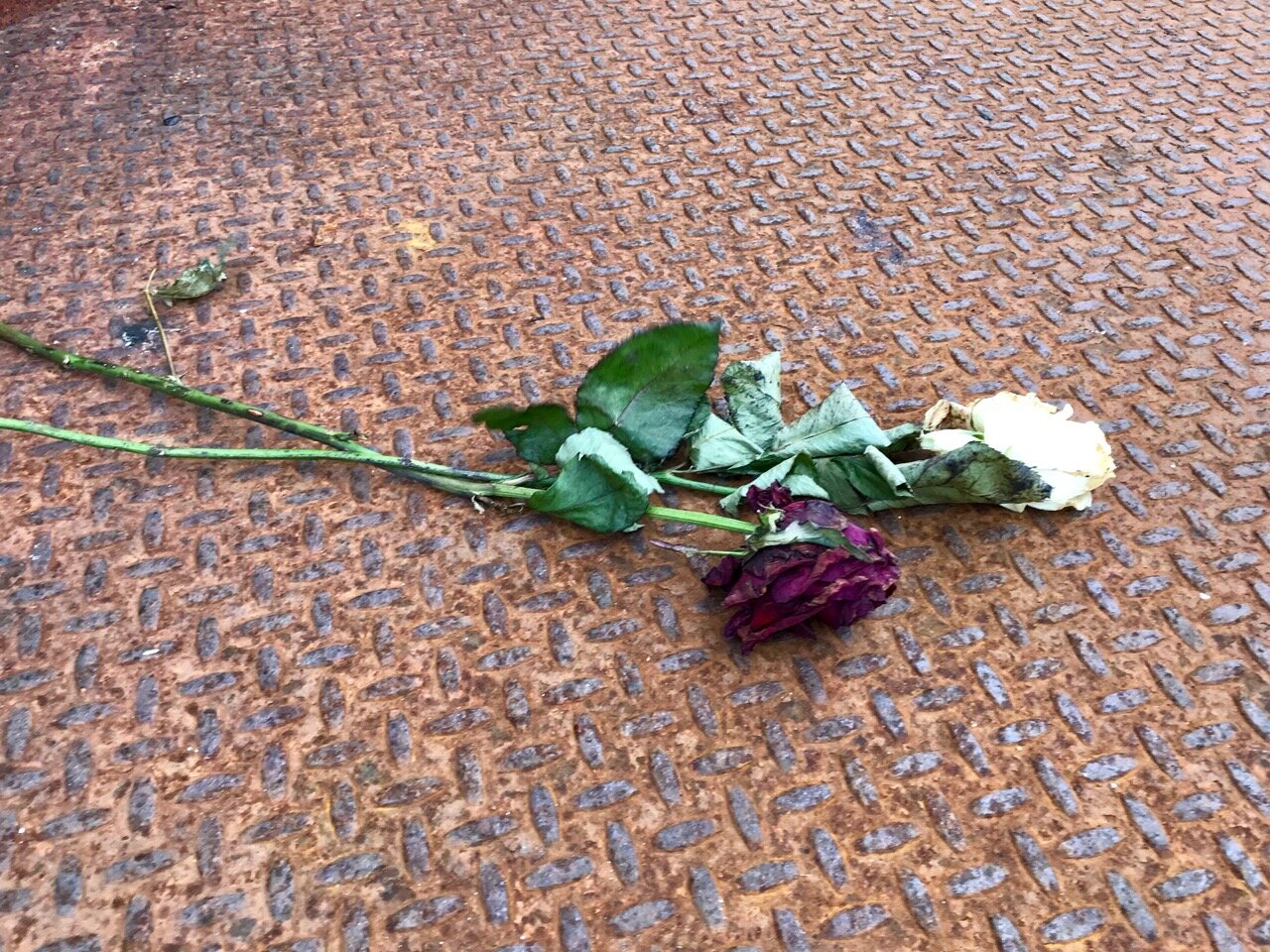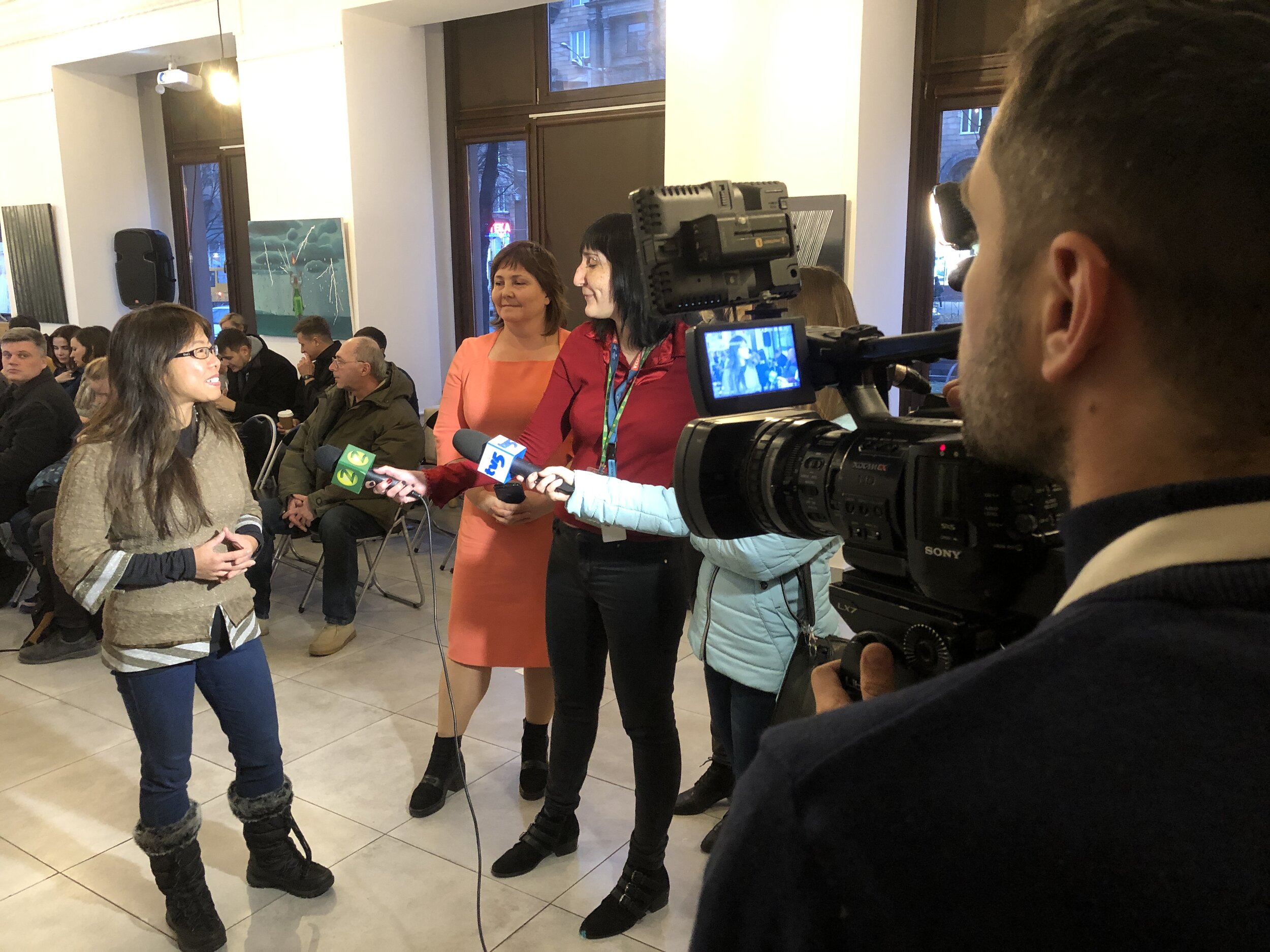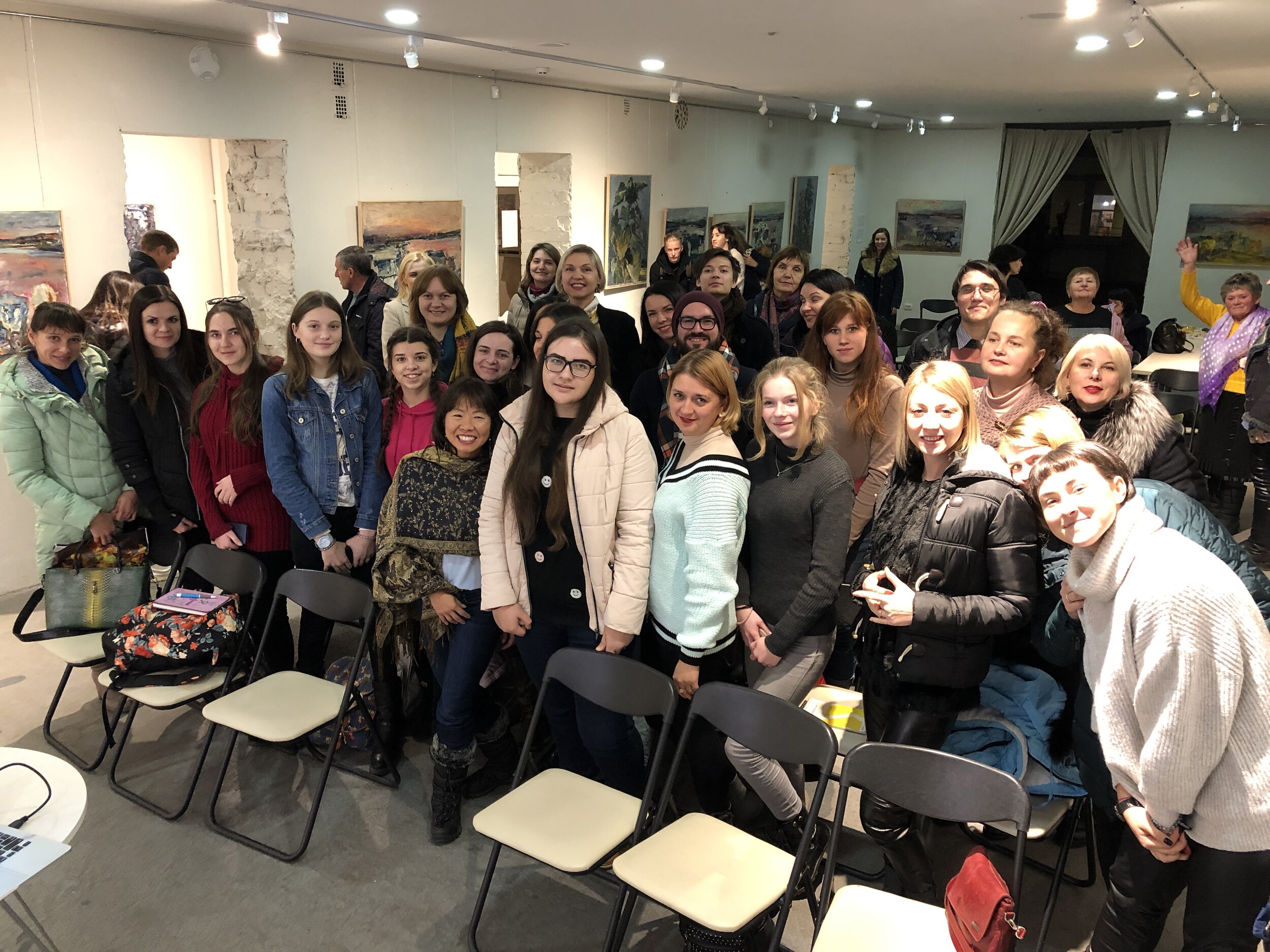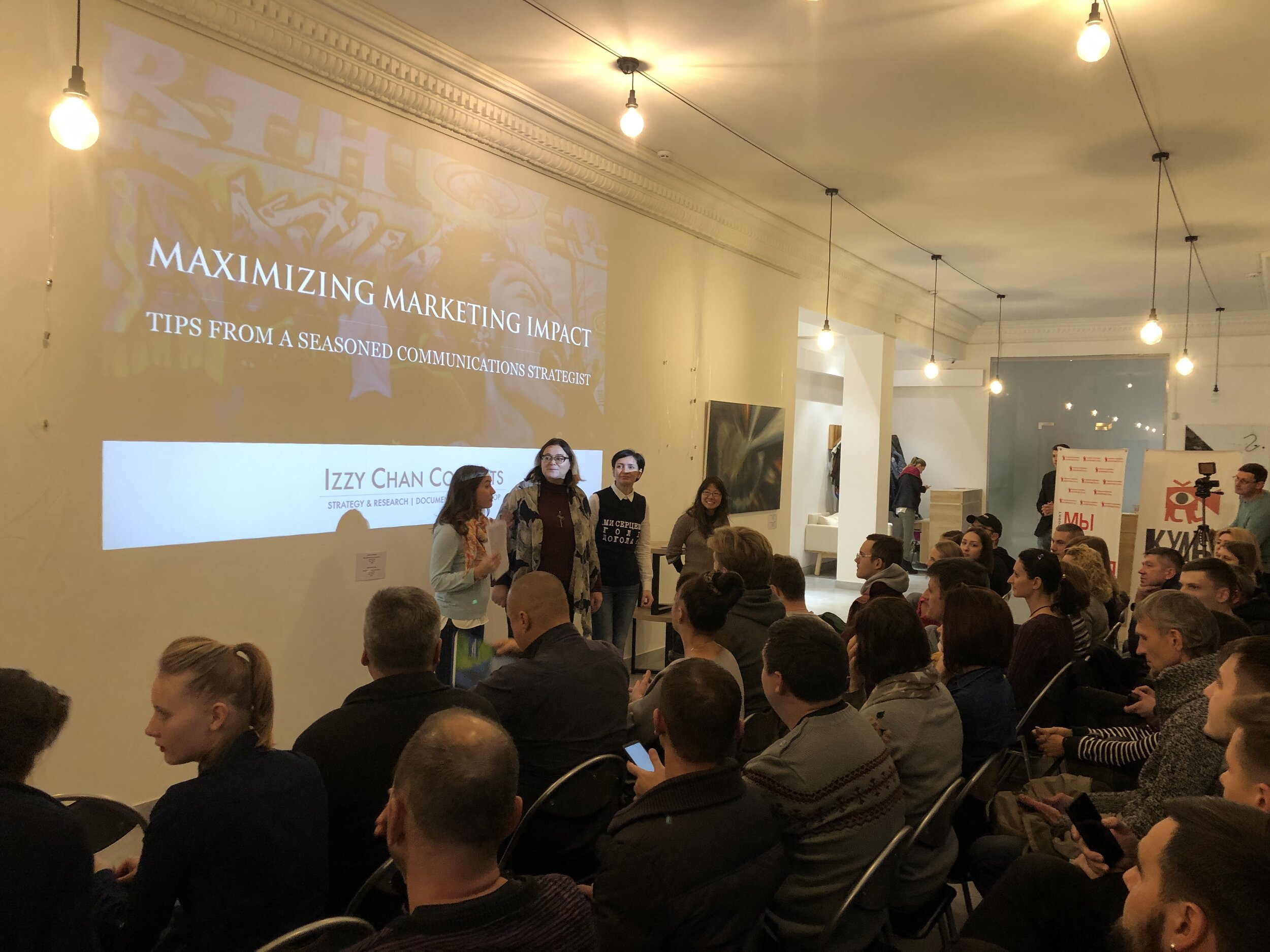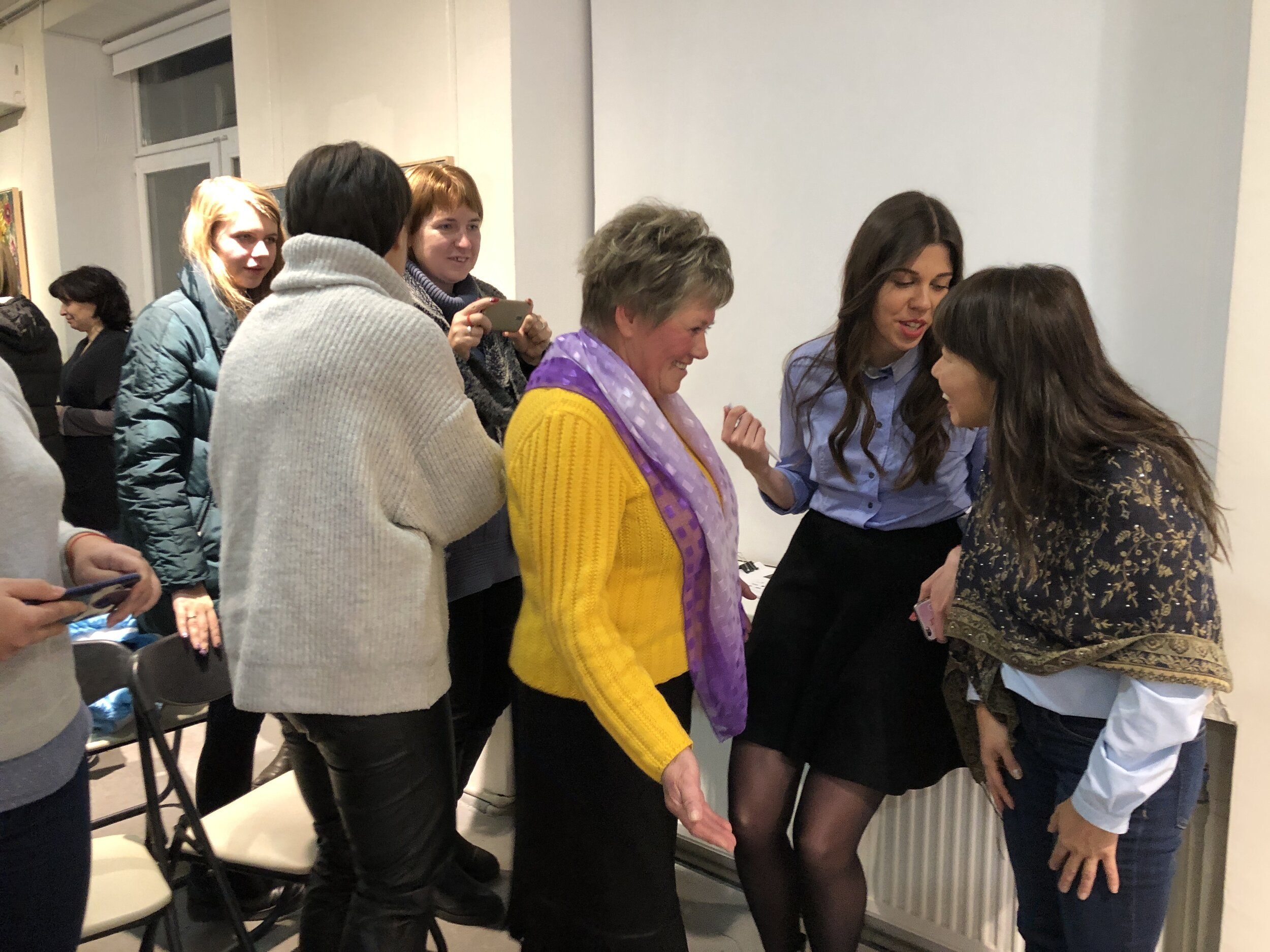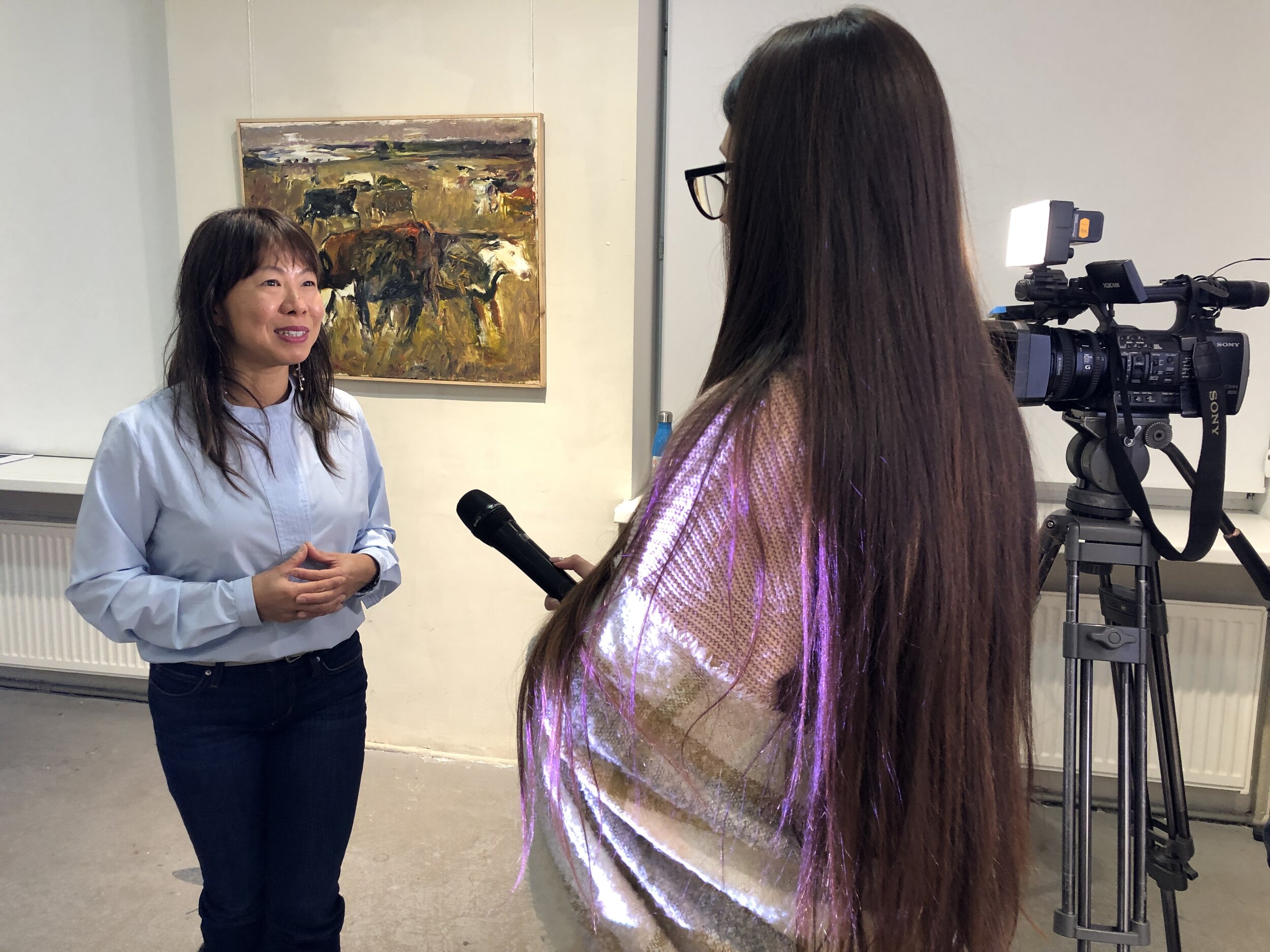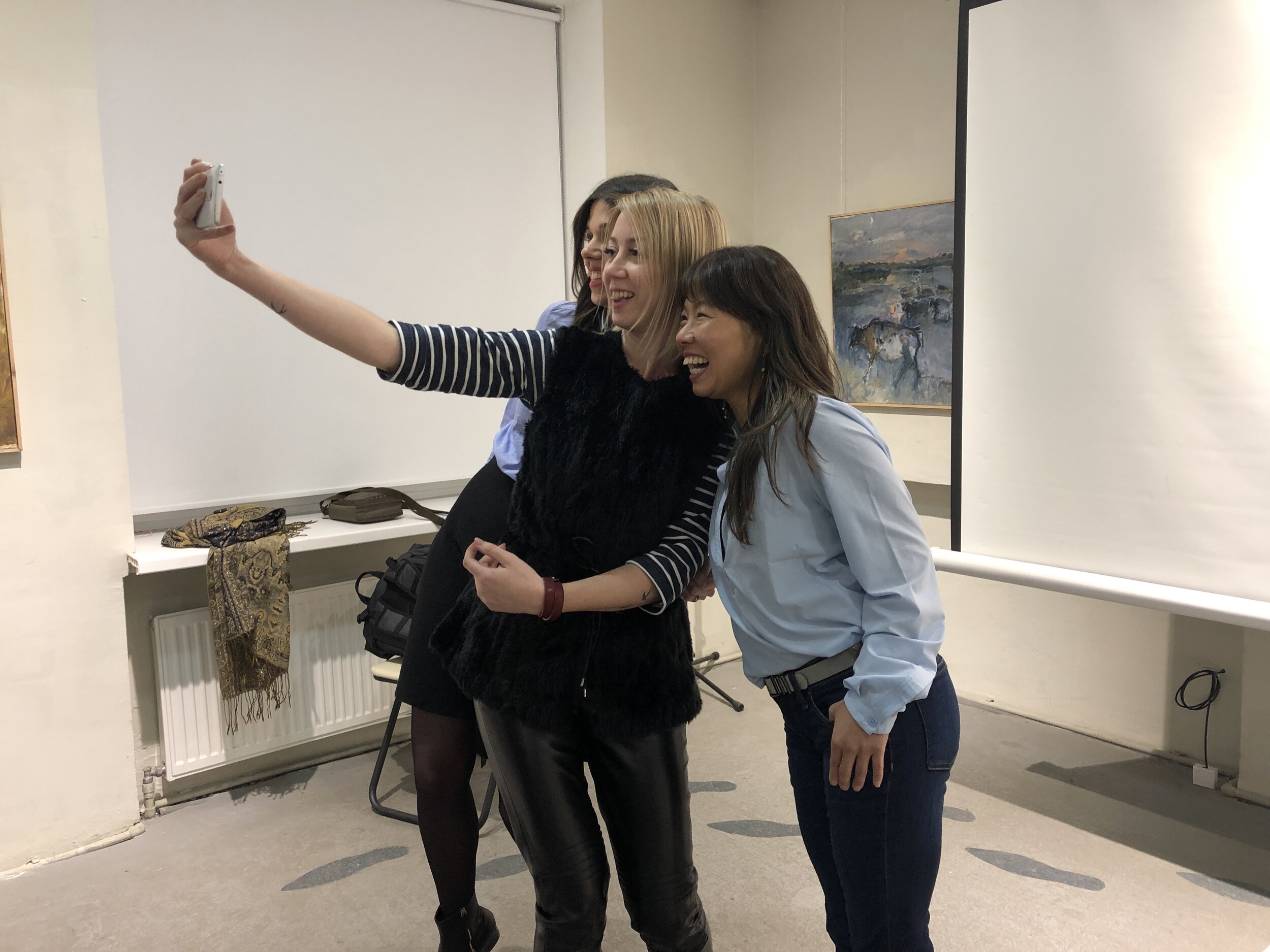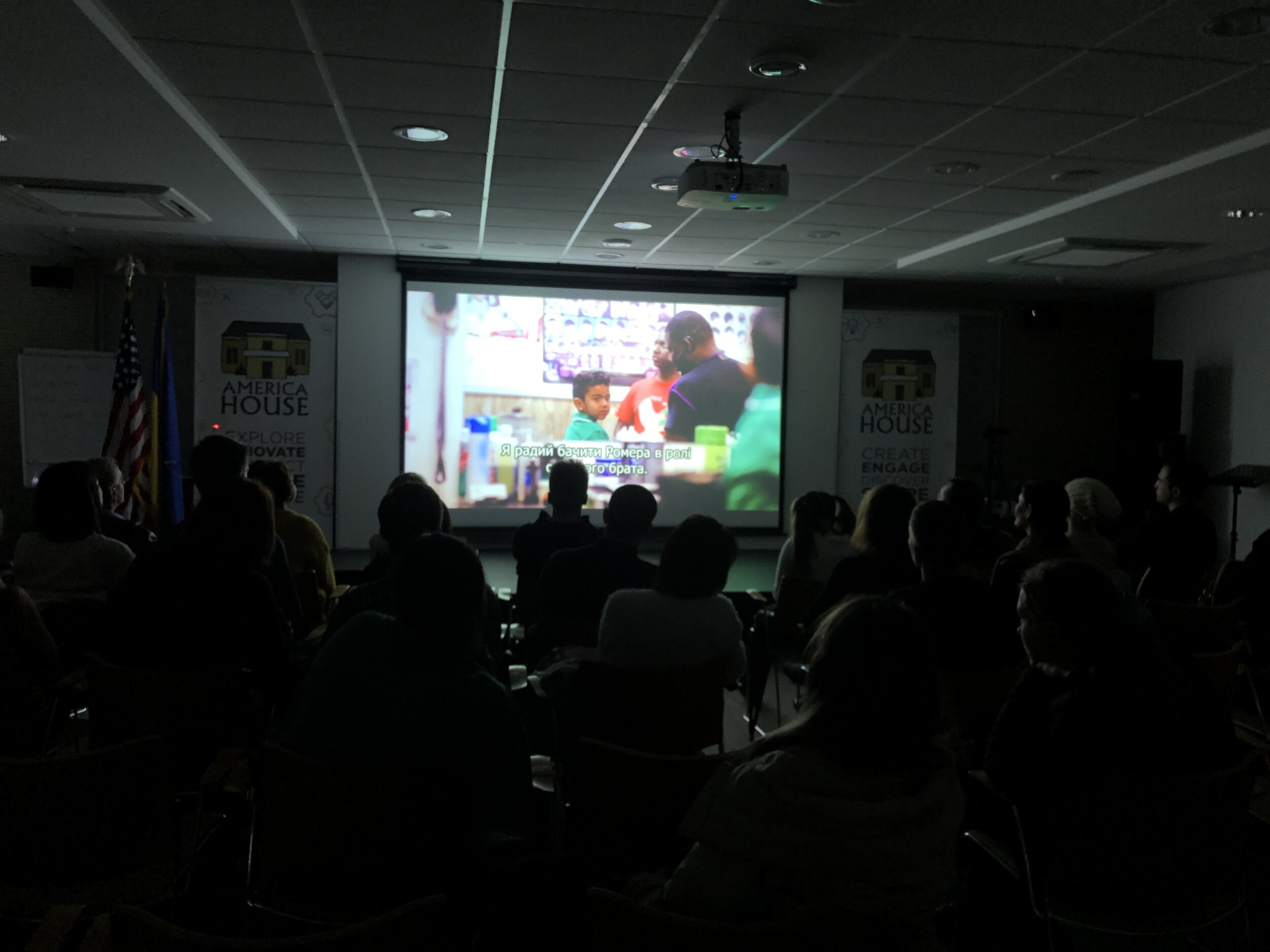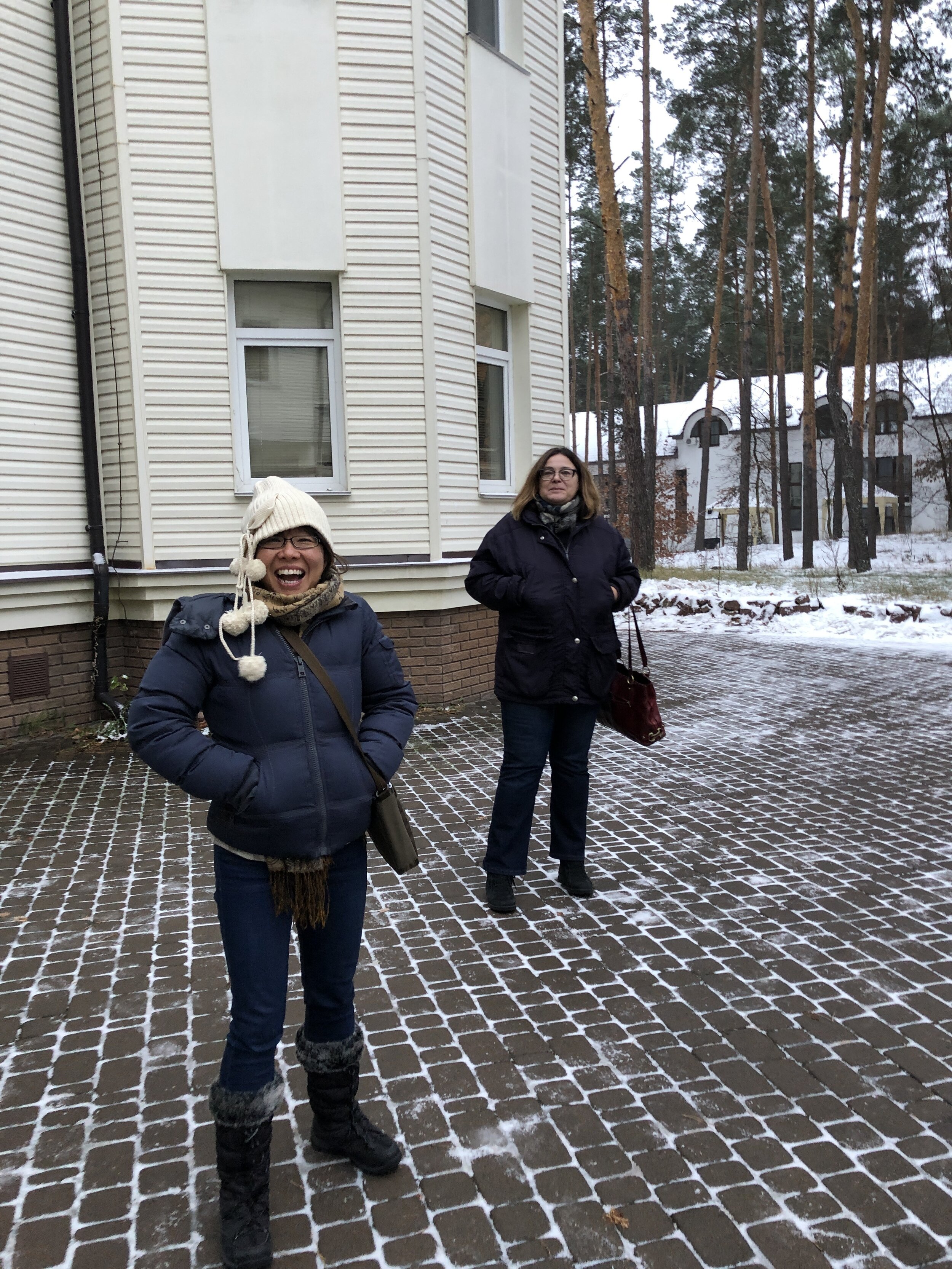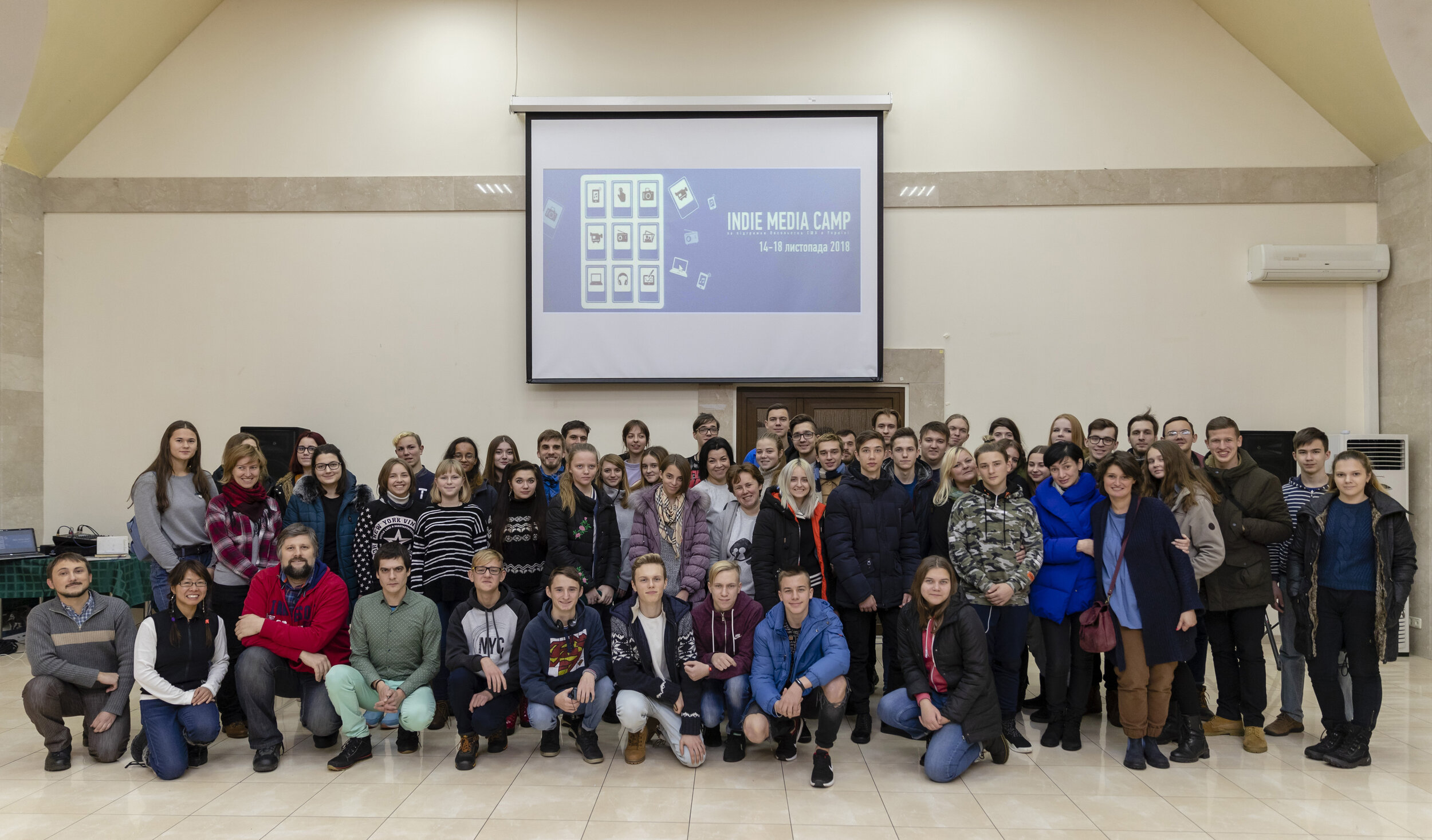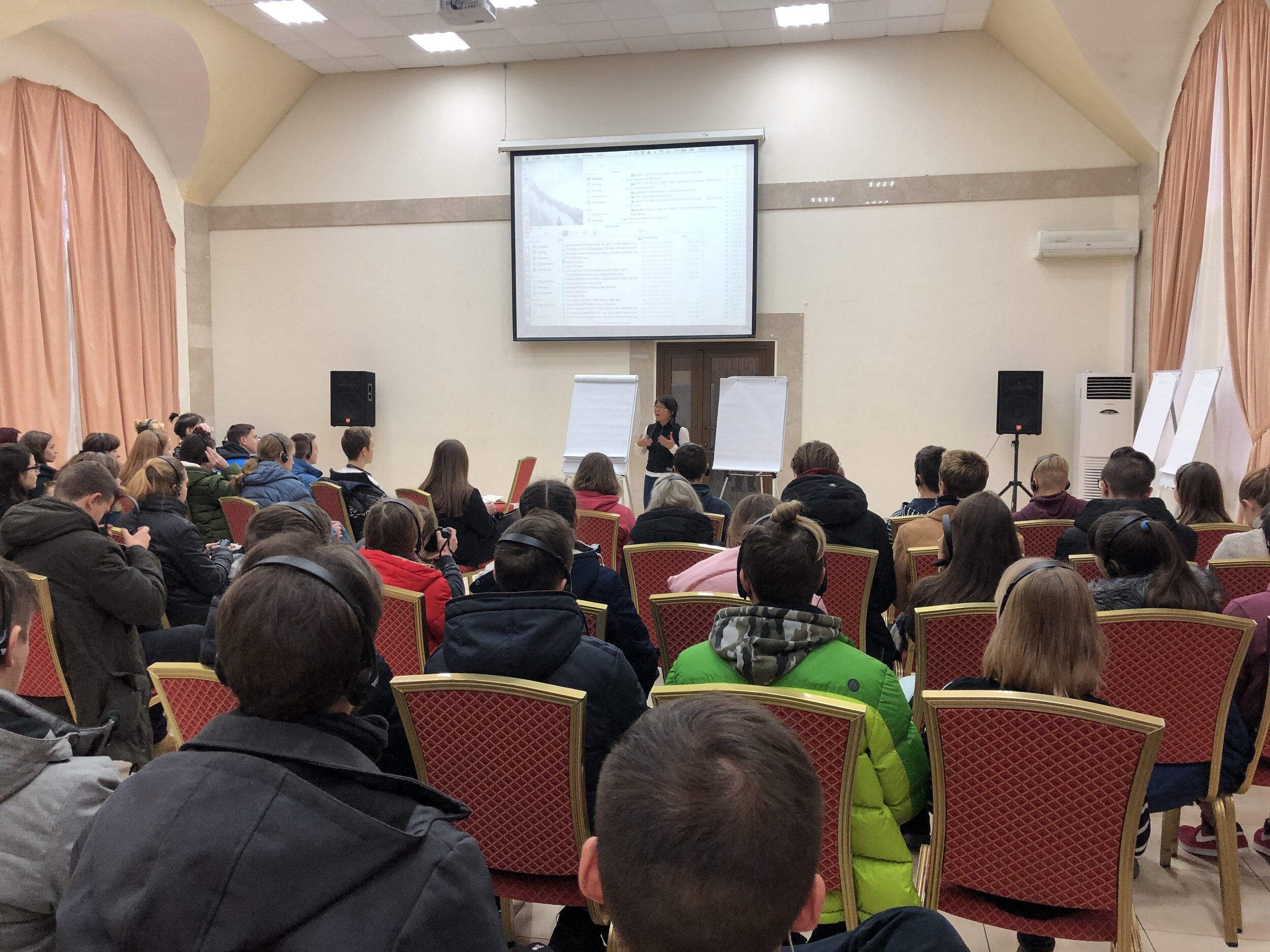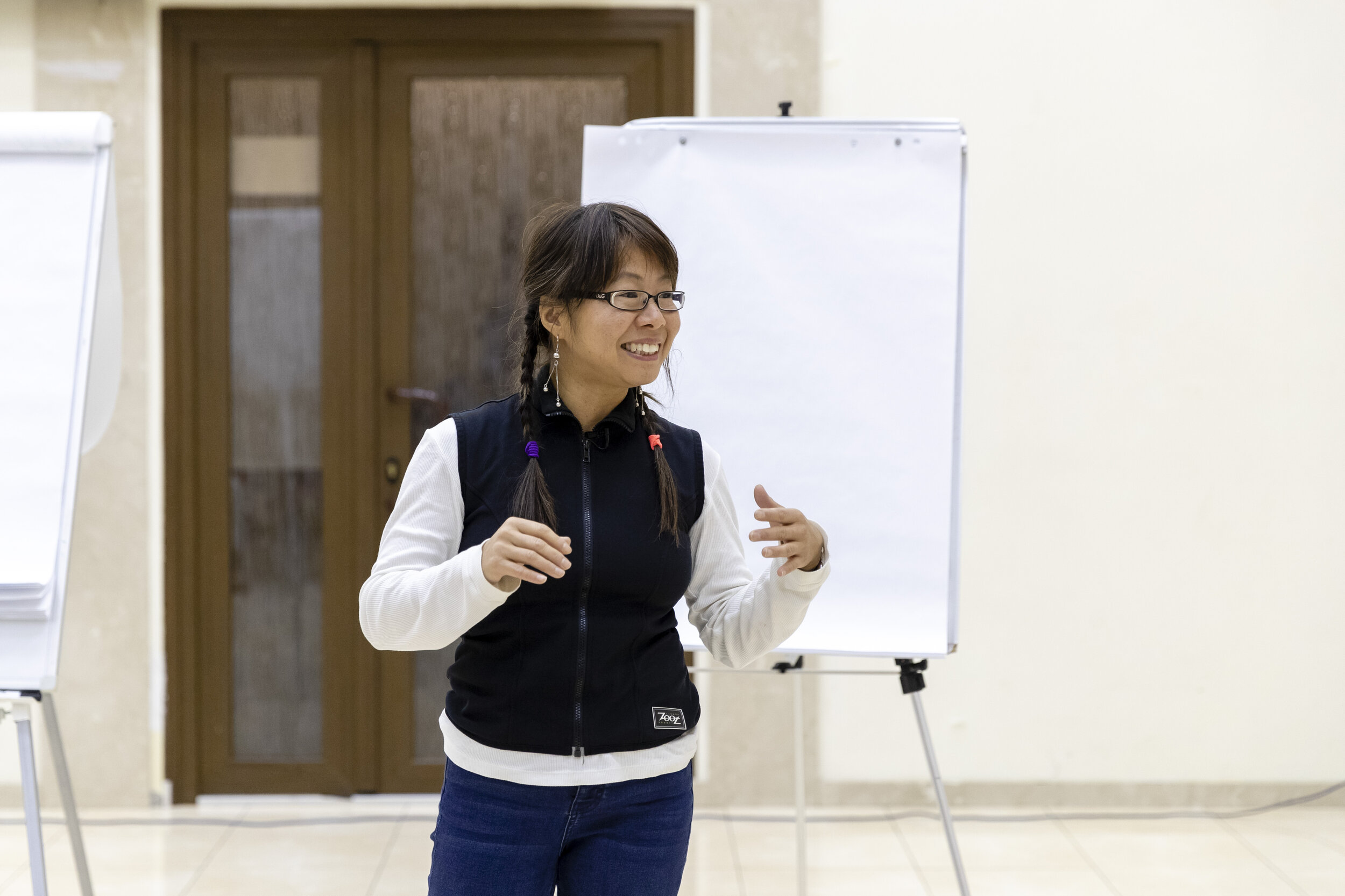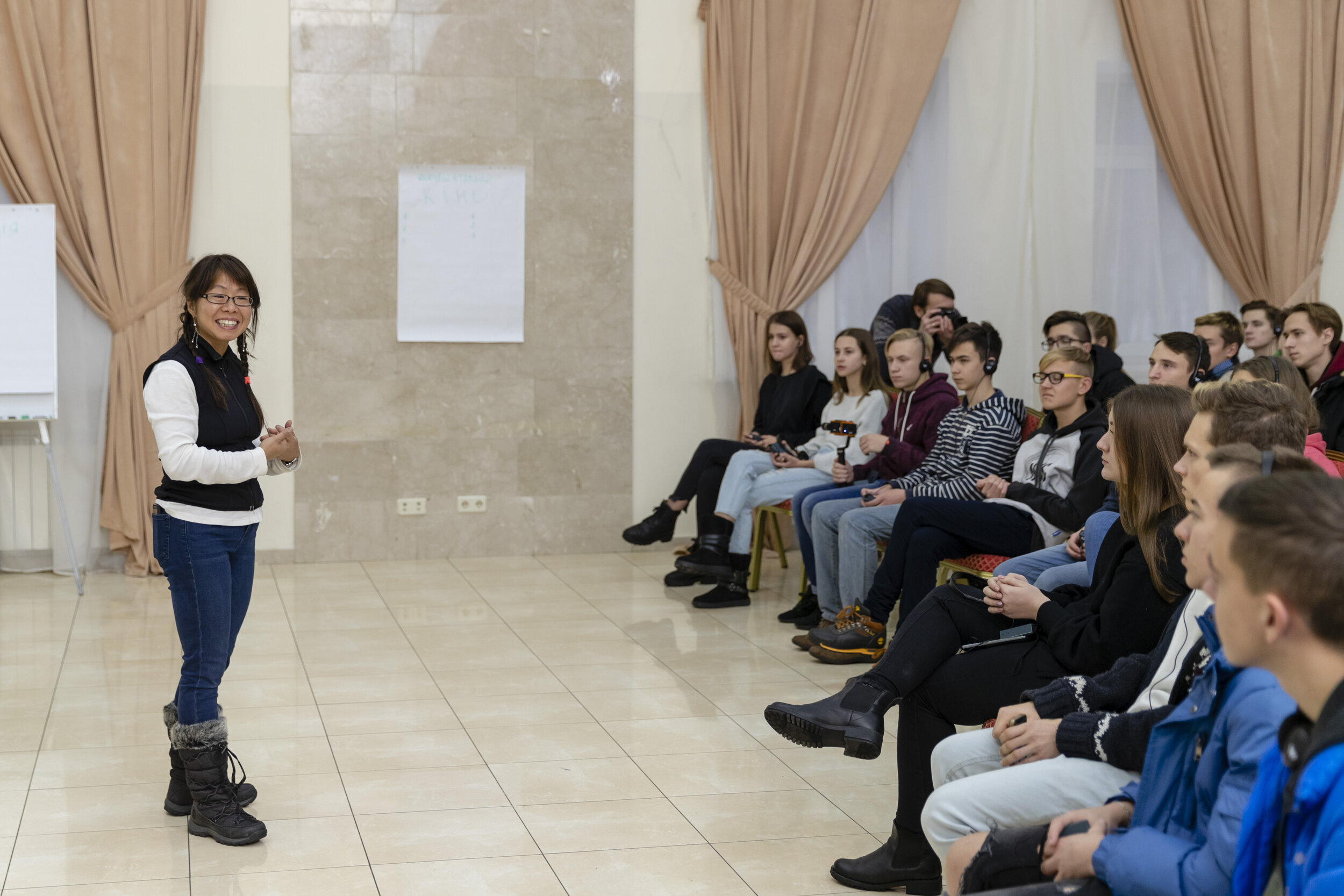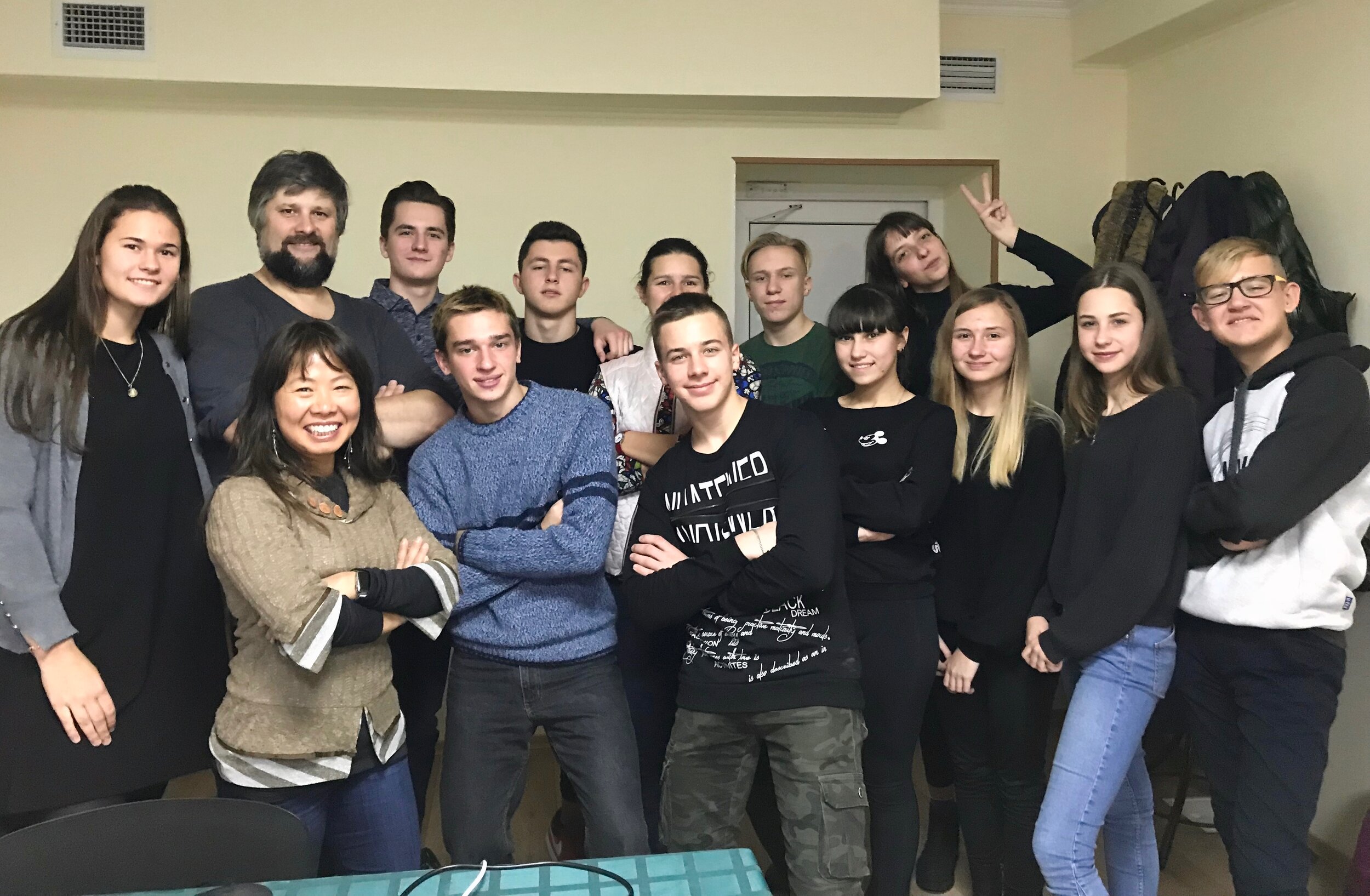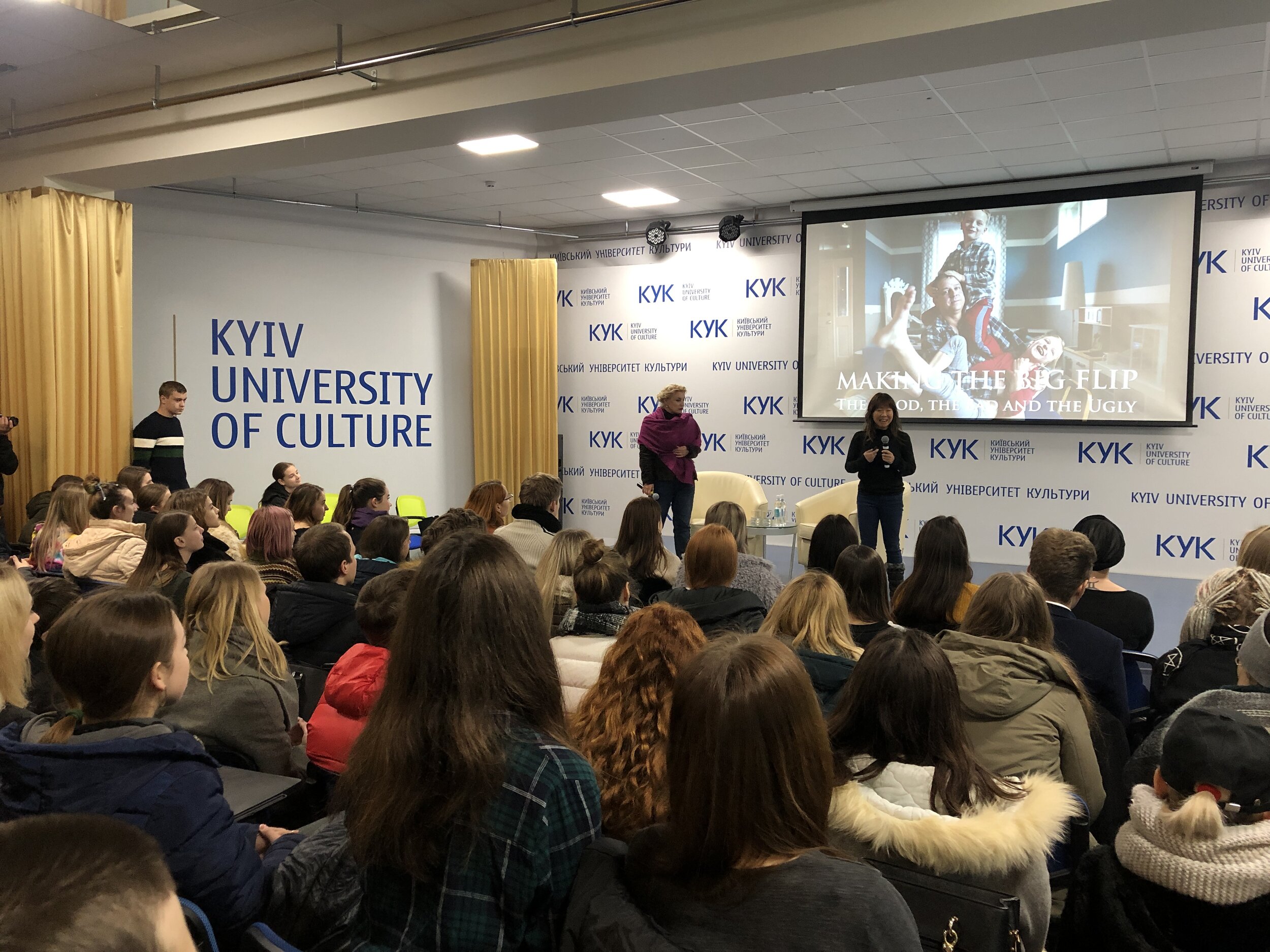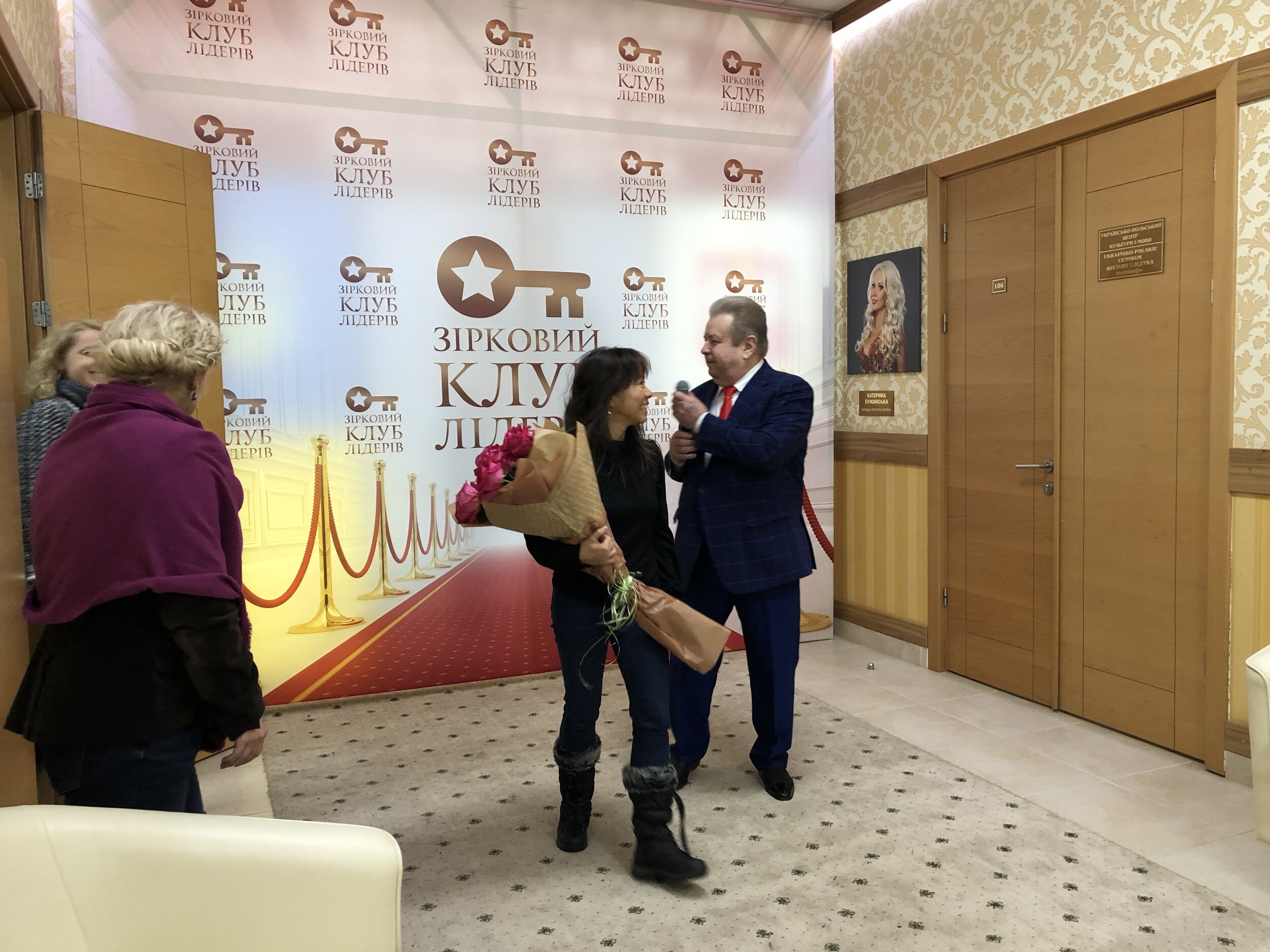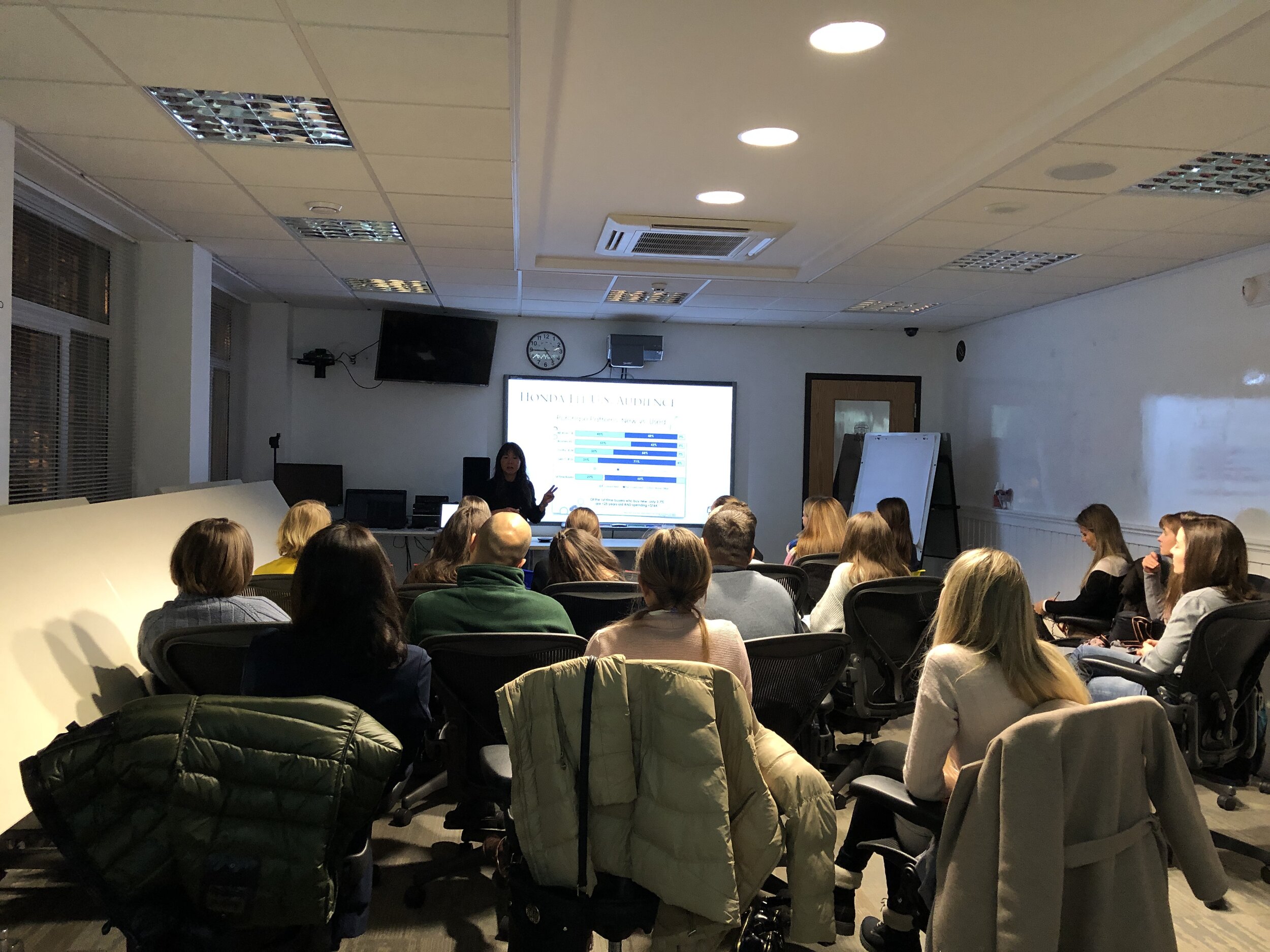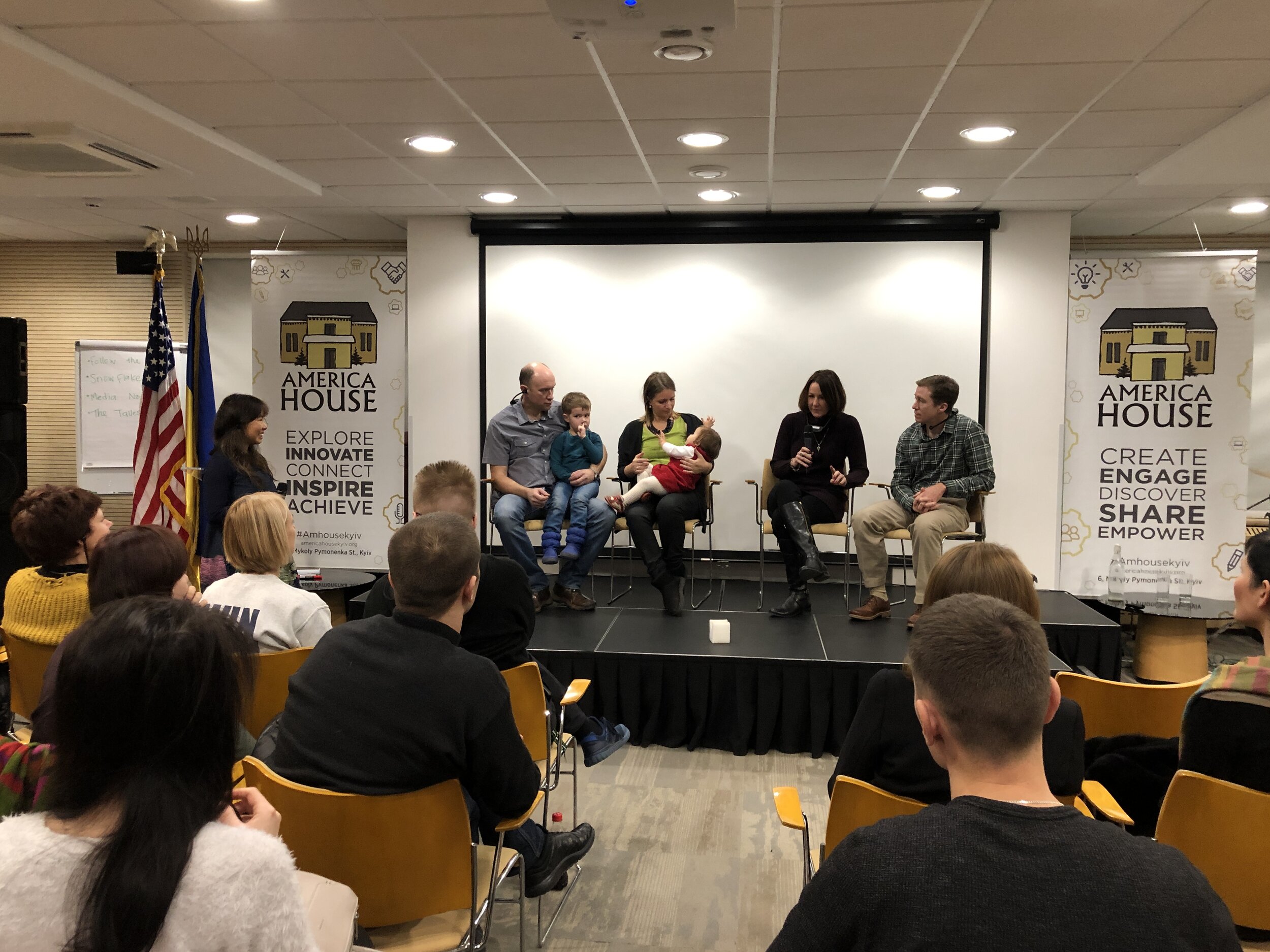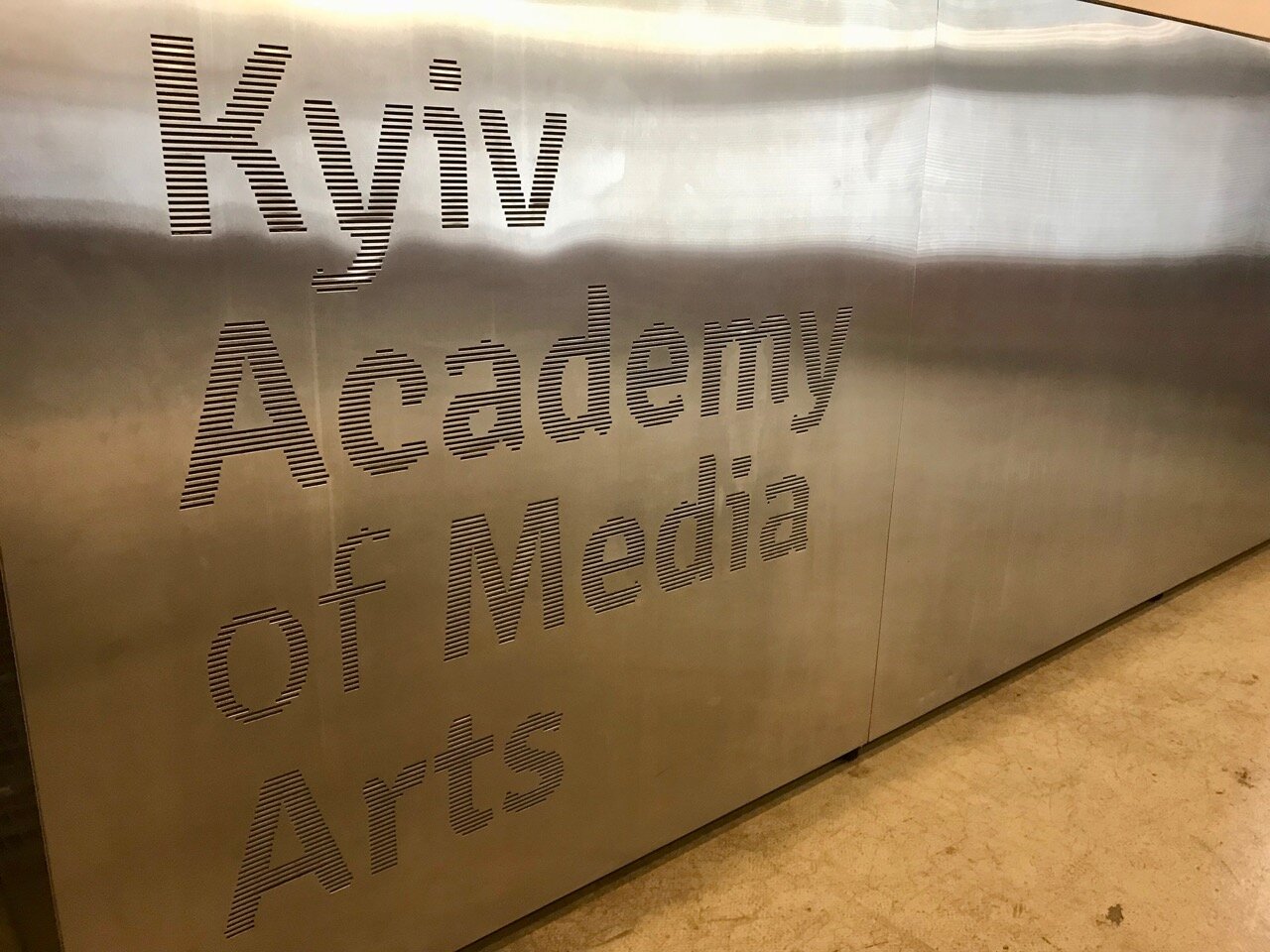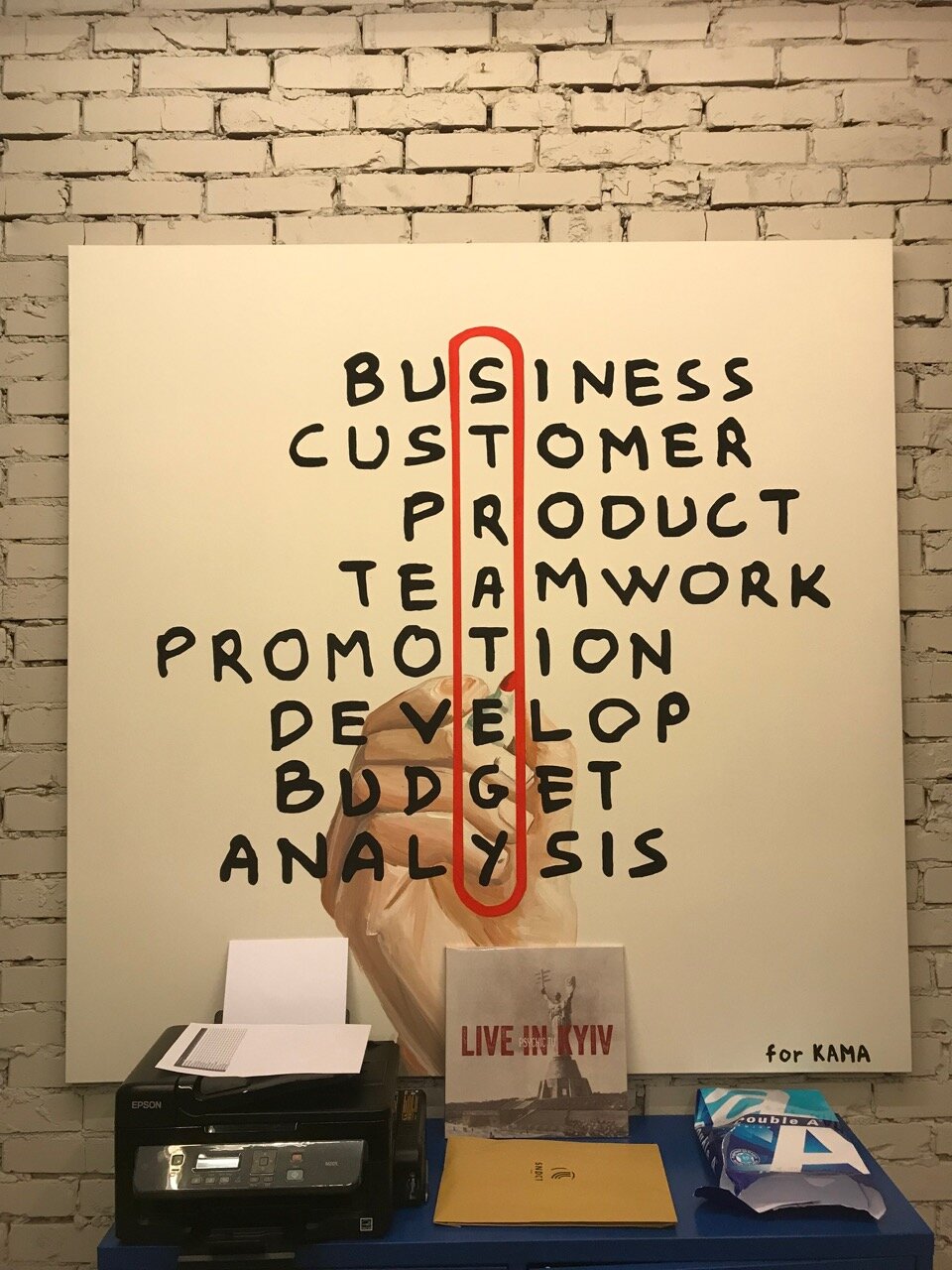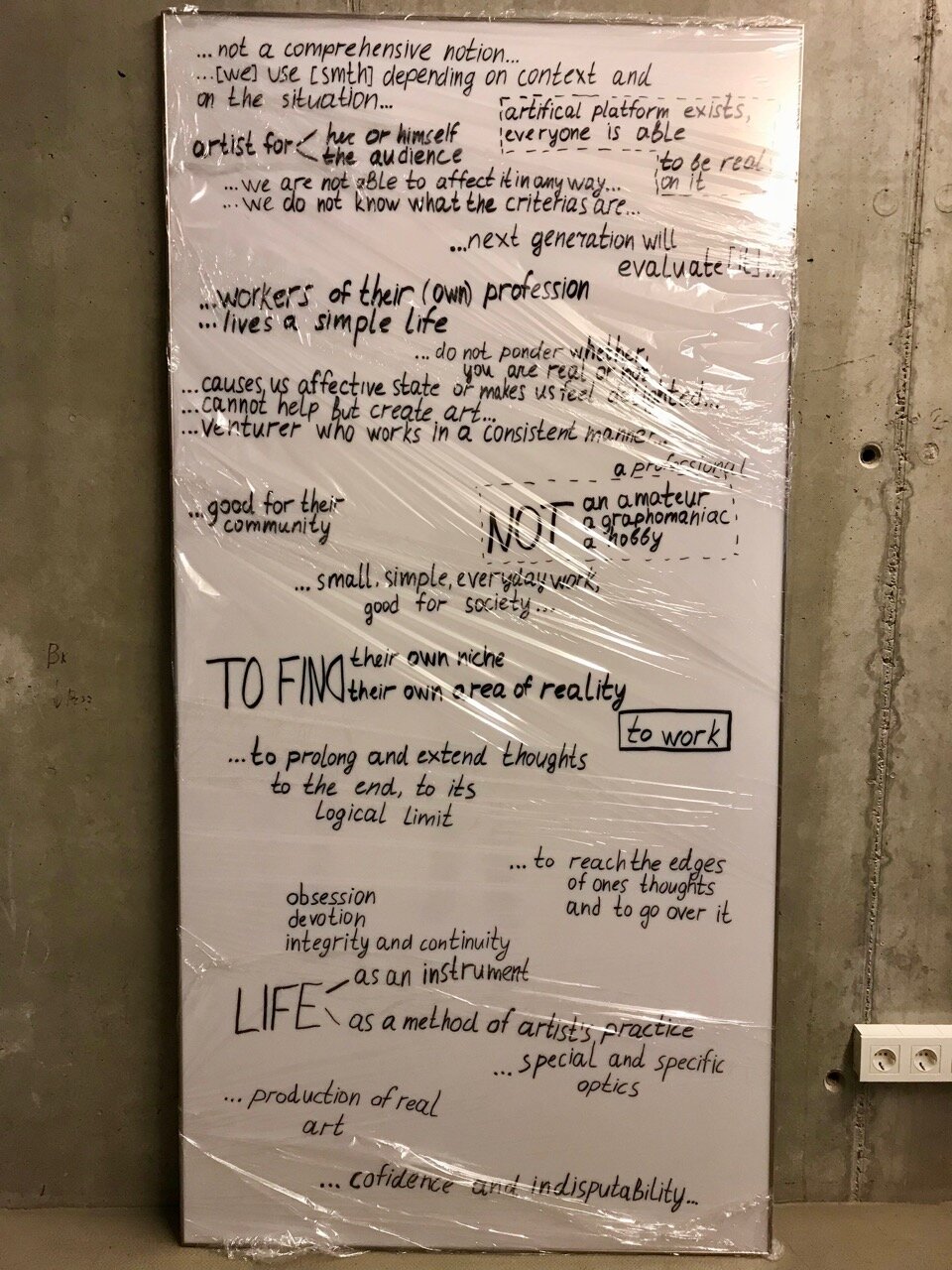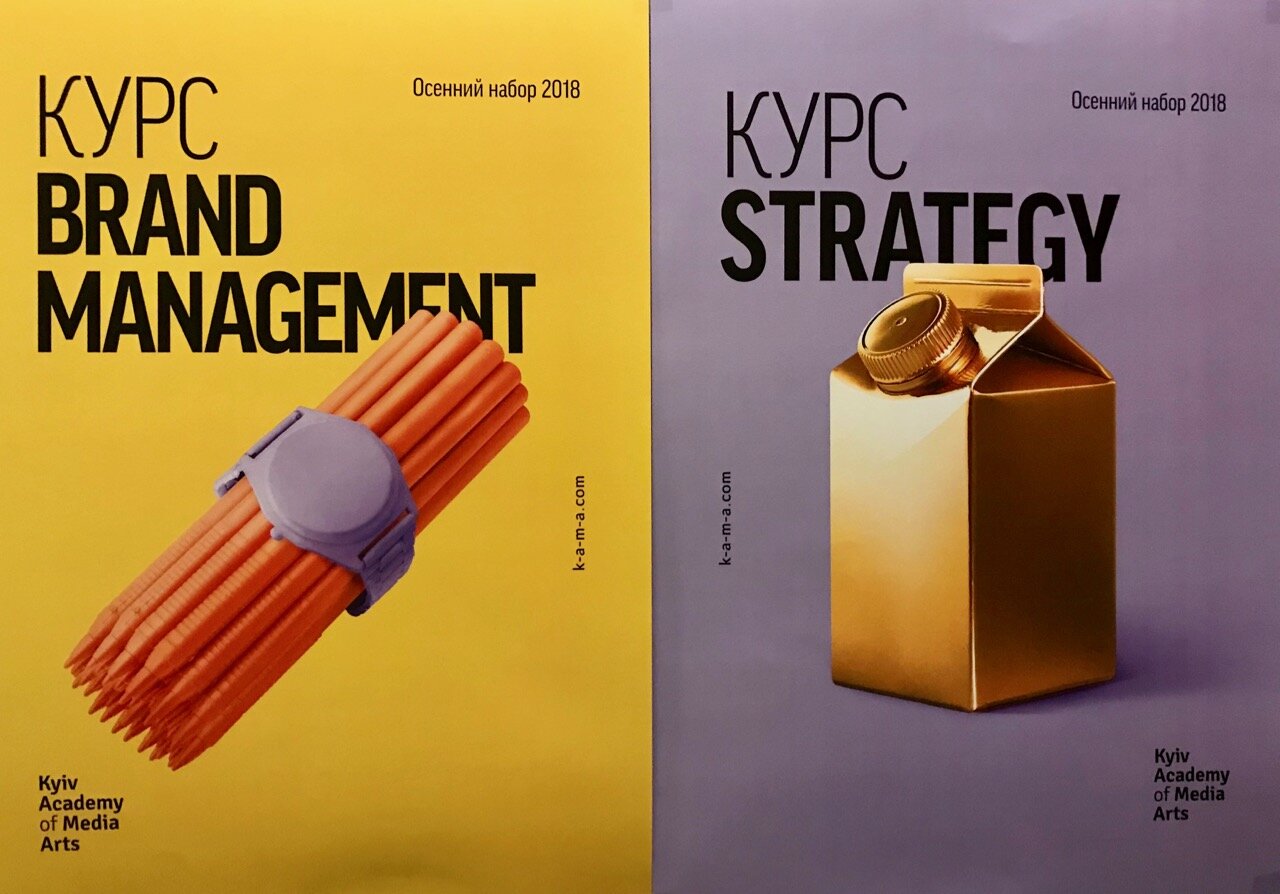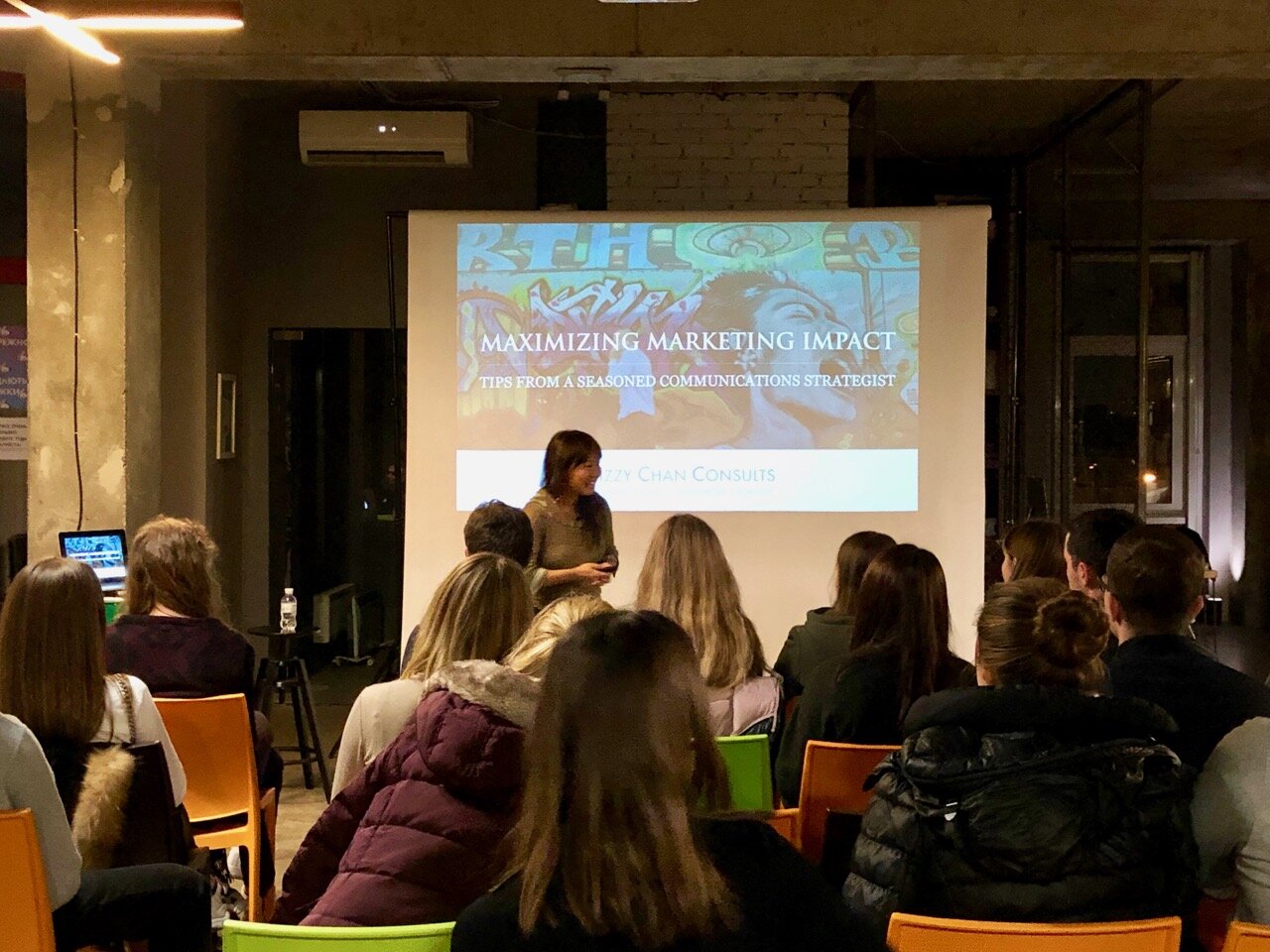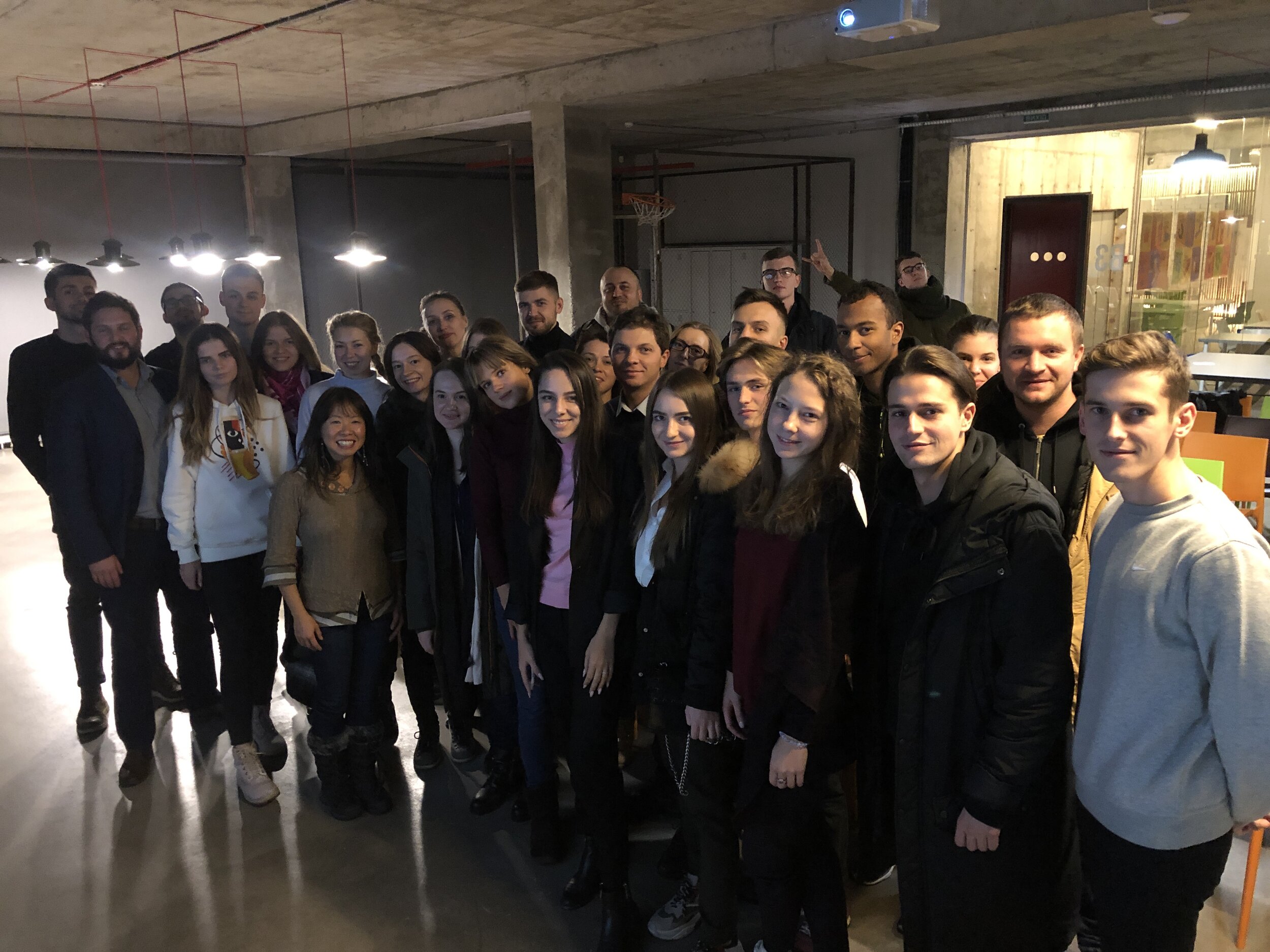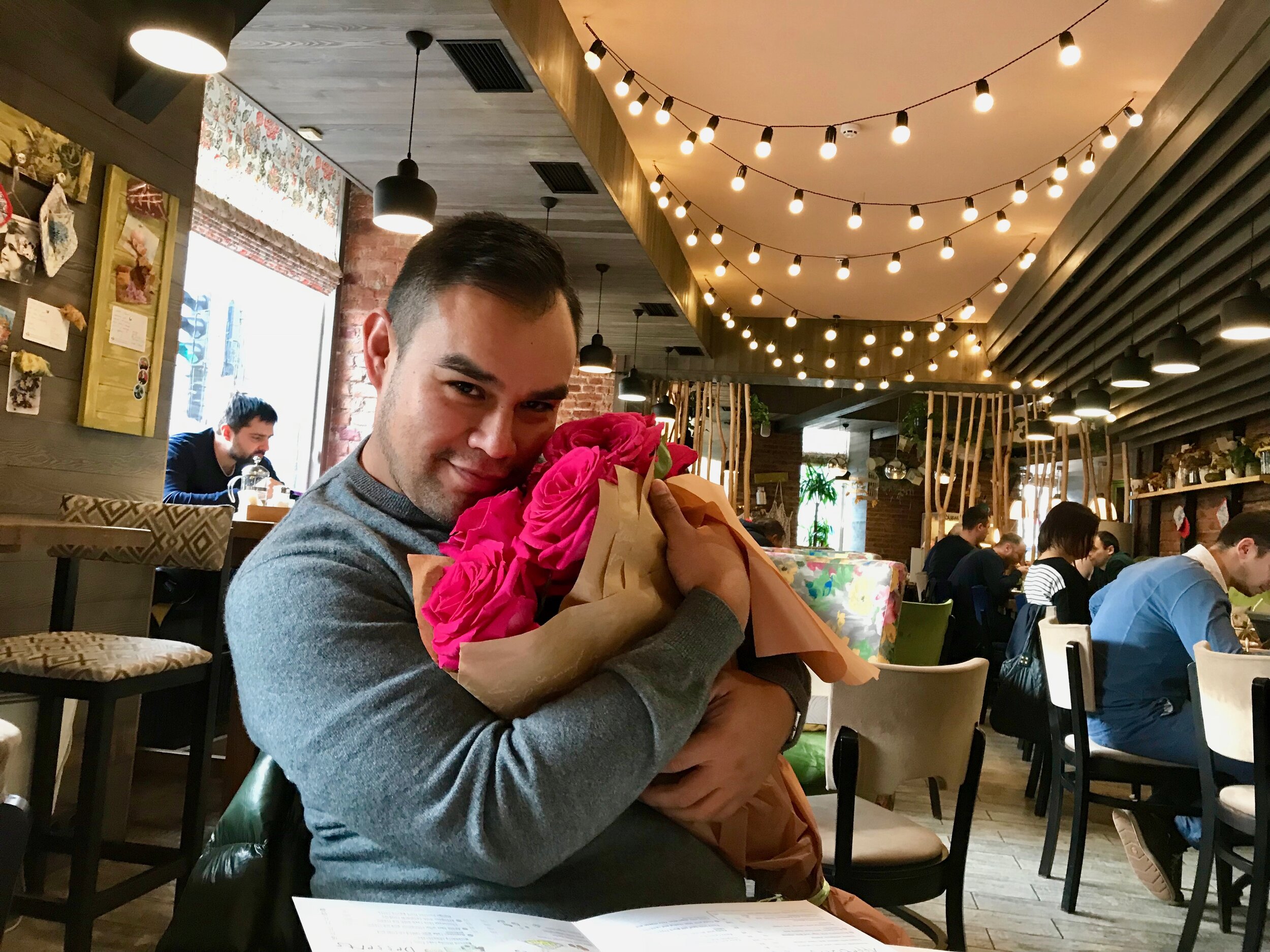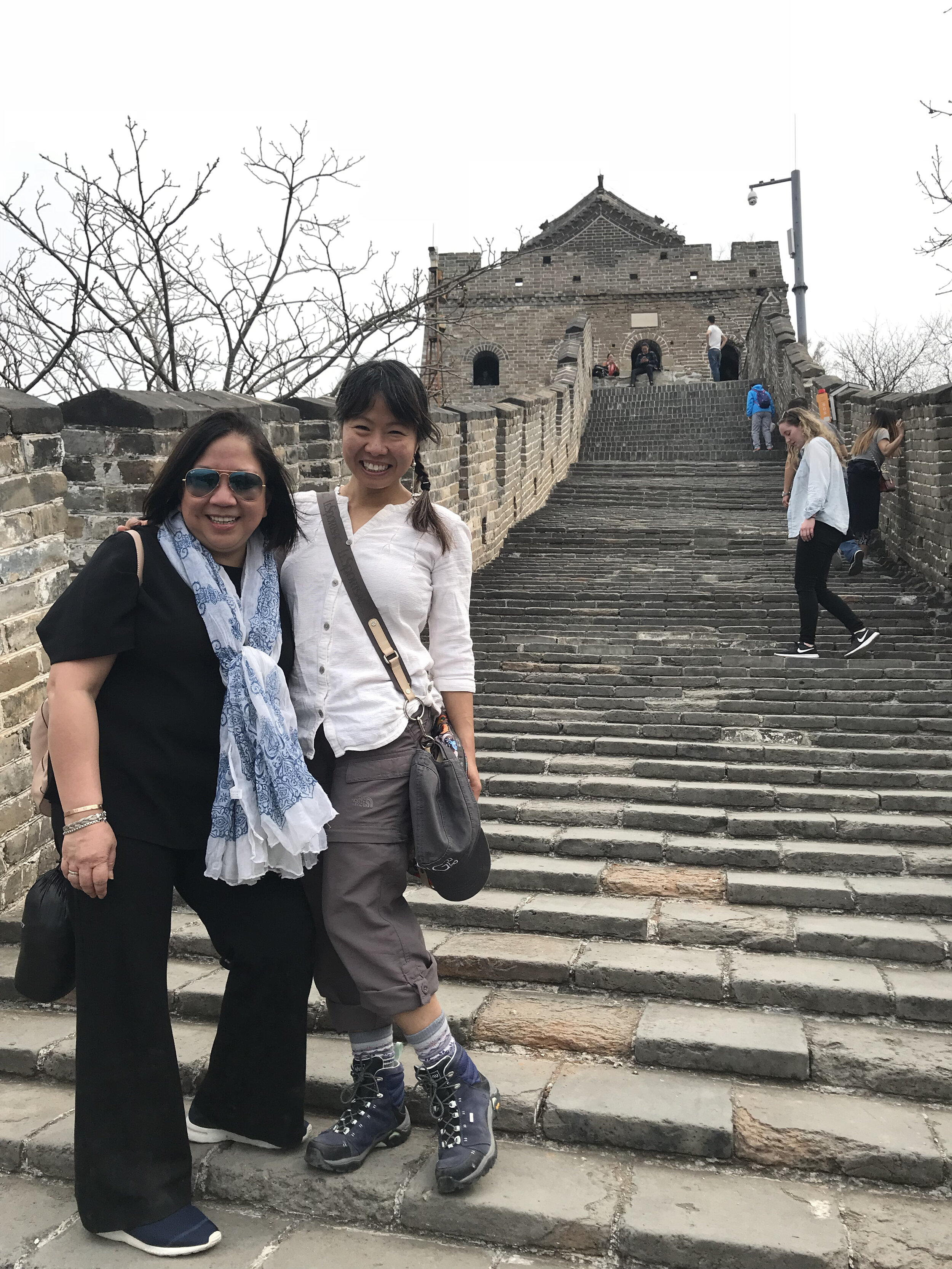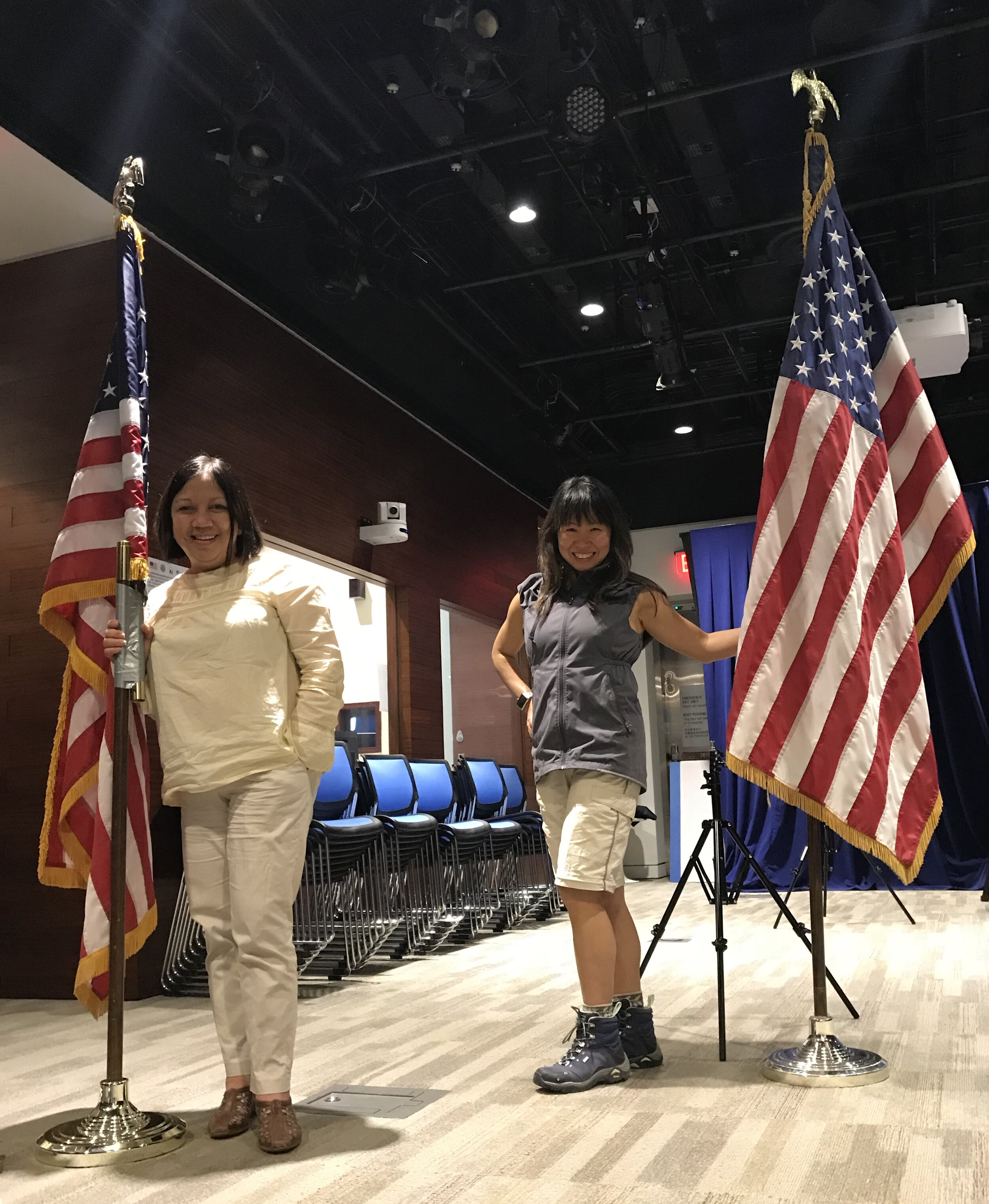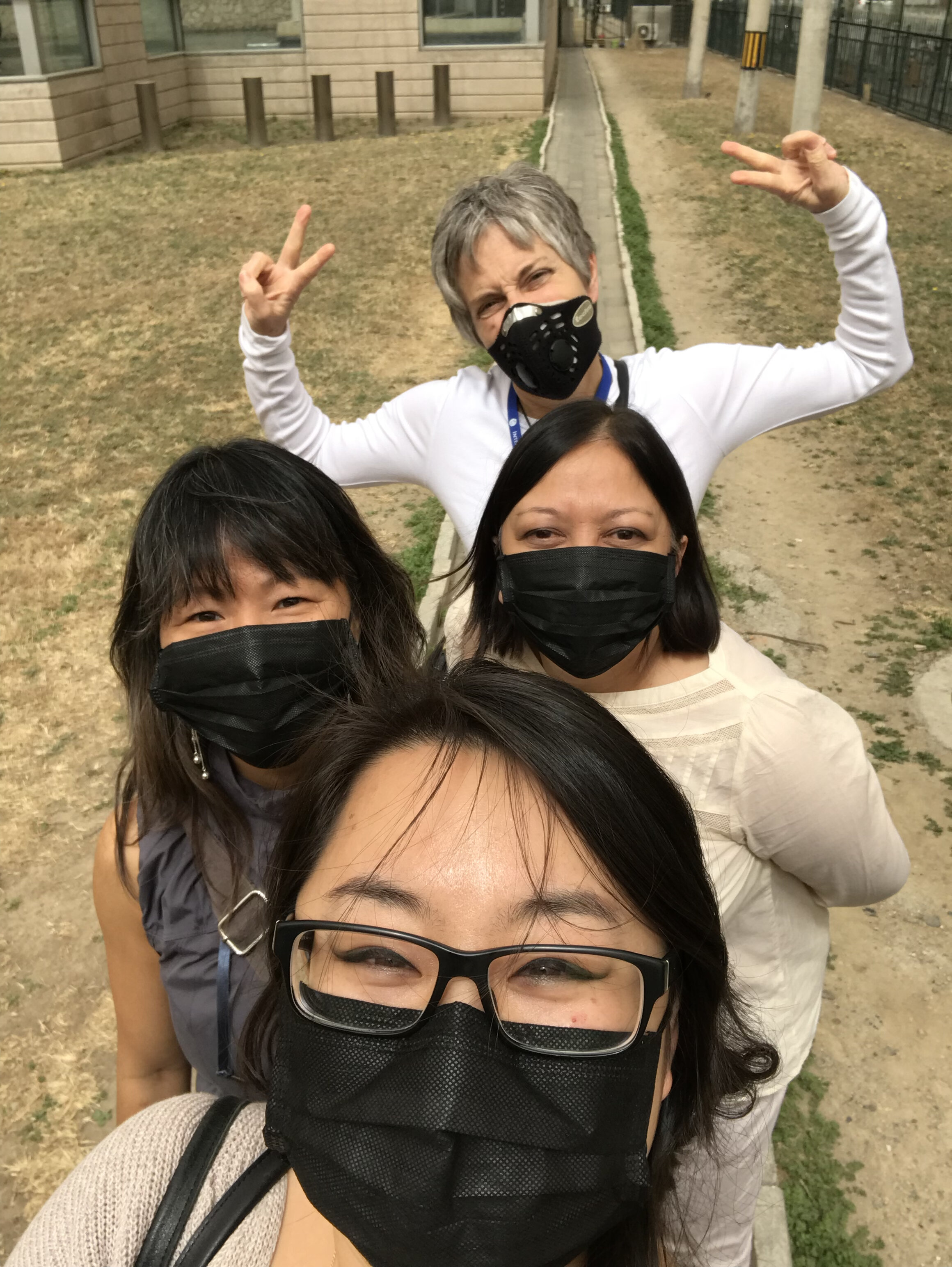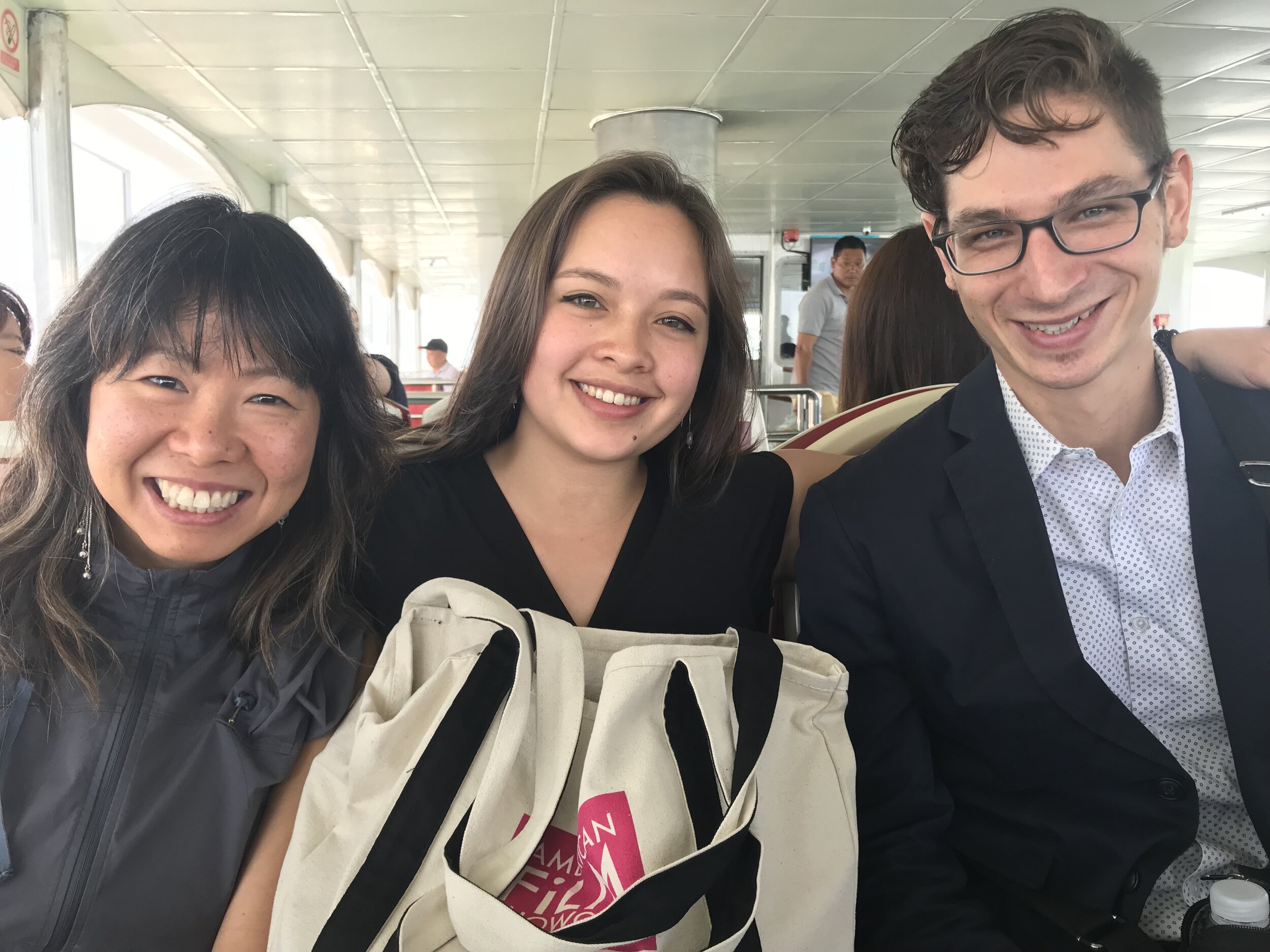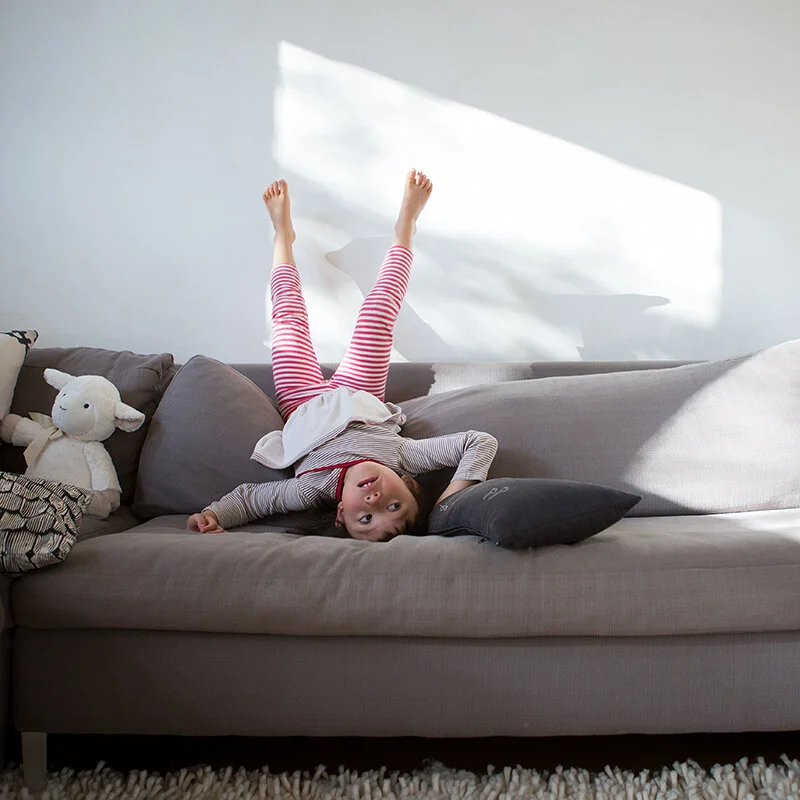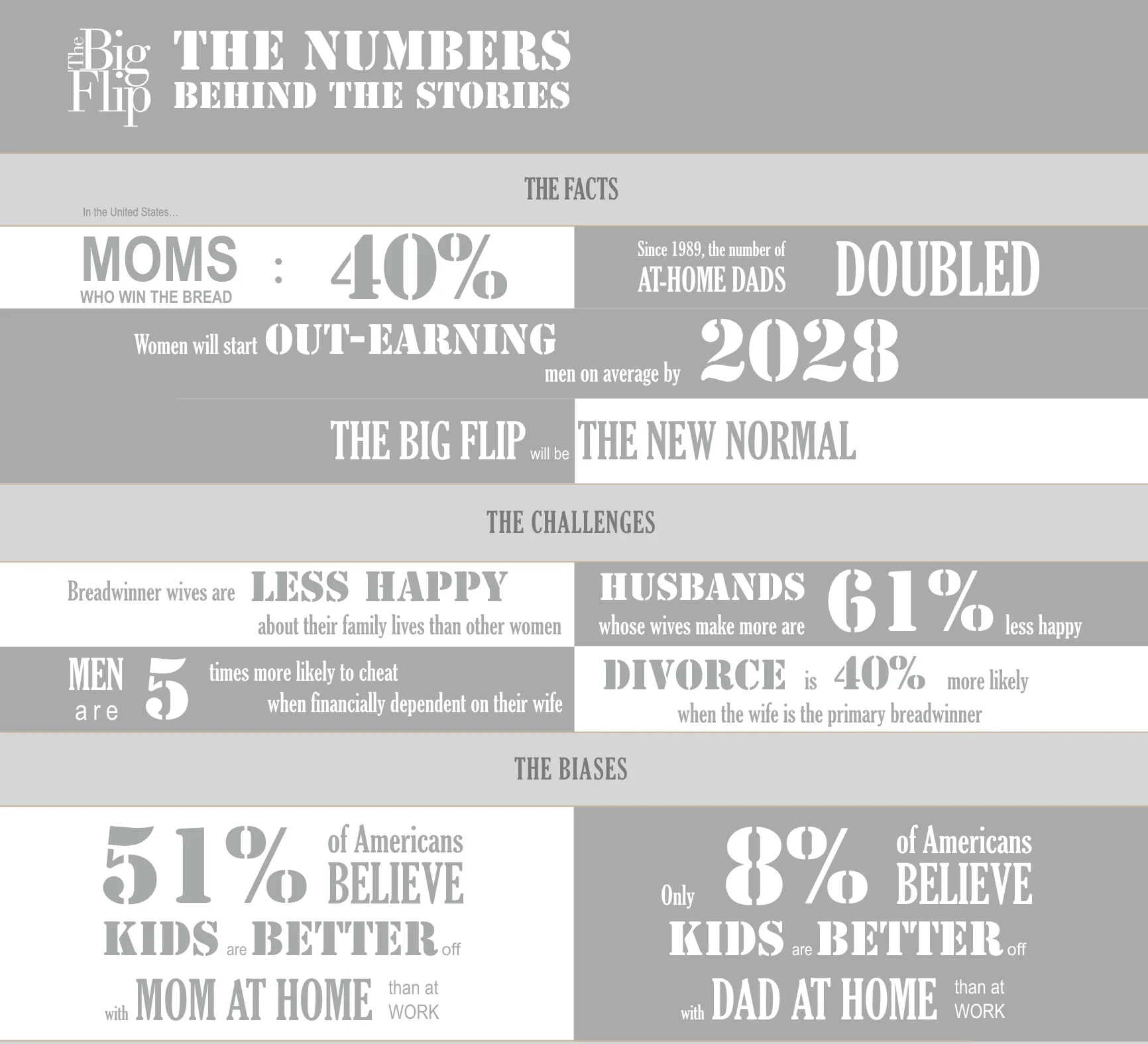LESSONS FROM MY YEAR AS A FILM ENVOY
/Proud Film Envoy for the American Film Showcase
2018 was an unforgettable, jam-packed year. I started the year as a new mom to a 2-month old. And it was the year where I was honored, and just plain tickled and thrilled, to serve as Film Envoy for the U.S. State Department's American Film Showcase.
I still get giddy when I get to say at meetings or parties, "Oh yeah, I was a Film Envoy for the State Department."
My baby girl in full AFS swag!
The American Film Showcase is a cultural diplomacy program that brings American indie films and know-how to audiences around the world. It offers an honest view of America through the lens of indie filmmakers. It was not an easy year for me to serve. In addition to being a new mom, I had just started production for an ambitious multi-year documentary project on four matriarchal communities in far-flung corners of the world.
But never did the American Film Showcase mission feel more urgent, making sure that people around the world got a broader view of our diverse people and our values beyond the headlines.
I was proud and eager to serve, and I am grateful that my dear hubby very much agreed. It was gratifying to share my film, The Big Flip, and my passion for storytelling and strategy with audiences in Egypt, China, and Ukraine. But what I'm most grateful for, the moments I recall most vividly, are the lessons and connections I get to bring back with me. Here are the highlights that come to mind.
The Big Flip is a feature documentary about four pioneering American families where mom is the breadwinner and dad takes care of house and kids.
1. The time in Cairo, Egypt, when a young man politely asked why I didn't feature "real men" in The Big Flip.
With Aya D., a smart, talented and joyful local member of the U.S. embassy in Cairo.
It was the first day of the mission, and my first mission as an envoy. The man was polite and kind in his introduction, complimenting the filmmaking, thanking me for coming to his country. When he finished with his question, “But why didn’t you show real men in the film?” it took a moment for the sting to sink in.
And it did feel like a sting.
As the director who has grown close to the families featured in the film, my instinct was to gear up for an intellectual fight. I was ready to defend these men against what I was interpreting as bias and insults against them.
Thankfully, the researcher and facilitator in me took over. I focused the discussion on genuinely trying to understand where the young man was coming from. What did he mean by "real men?" What made him think that the men in the film did not fit his definition?
After the lively, at times heated, ultimately productive discussion at the American Center in Cairo.
The discussion was long, at times heated, as other audience members jumped in to argue and dismiss his comments. But I persisted in including him, allowing him to share his frustrations, trying to listen without judgment.
It turned out his frustrations had nothing to do with the men in the film. His anger was directed at some men in Egyptian society whom he saw as bullies. Unable or unwilling to find work, they beat their wives, and took the women's earnings.
We never got him to change his mind or take back his mischaracterization of our big flip dads. But we managed to agree on this: what matters is for both men and women to contribute to the family, whether through earnings or housework or childcare. It's not right for just one member to carry all the responsibilities.
The next day, I was surprised (and a little worried!) to see the same young man and his friends return to another screening of The Big Flip. When he raised his hand during the Q&A, I was afraid he wanted to restart the debate. To my surprise and delight, he told us that he appreciated the film more the second time.
He shared the lesson he took away: it didn't matter who worked and who stayed home. What mattered was that husband and wife talked and agreed on what's right for the family.
Lesson to self: to change people's minds, don't try to change their minds. Change our minds together.
This exchange taught me many things. First, changing minds is a multi-directional dance, not a two-way tug of war. To change minds, we have to let go of being right, of winning an argument, and focus on connecting, learning, and understanding. We have to listen with open minds and hearts. Then together, we can shift our perspective, and find common ground that we can agree on.
This young man was also a great example of how to have a productive and civil argument—something we sorely need in America nowadays. Even as he passionately argued his beliefs on gender roles and male responsibilities, he was always respectful and took great care not to disparage me personally. Never once did he say anything to attack my character nor my professionalism. By never making the argument personal, we were able to have a meaningful conversation on the issues and slowly build trust.
2. The time in Zhaporizhzhya, Ukraine, when a student reporter asked if I was worried about visiting given the security situation.
A beautifully designed cultural guide to Ukraine, thanks to the Kyiv Academy of Media Arts.
The question threw me off at first. What was there to be worried about? The streets, the airport, the people—nothing felt unsafe or out of the ordinary.
Then I remembered, this was a country at war with a powerful neighbor.
Beyond the gender equality message of my film and the strategy expertise I was sharing, what mattered most about the mission was that we were there. We showed up. We had not forgotten who our allies are. It was important for Americans to show that our relationship with the Ukrainian people mattered. That we want to invest in exchanges and connections between industry experts in Ukraine and America.
So I told the student reporter that I wasn't worried, that I had great trust in the Ukrainian people in keeping our events lively, fun, and safe. A simple answer from the heart.
Lesson to self: focus on the people in front of me (and get over myself!)
Sometimes, I stress about saying the right thing, something deep and insightful that shows off my smarts, my unique expertise. But more often than many of us realize, the job is simply to show up, be present, and let people know that you care, and that you believe in them.
My job isn’t to be the hero in the room. It’s about making others feel like the hero in the room.
One of the highlights of the mission was having a Ukrainian big flip family and an American big flip family (from the Kyiv embassy) join us for a post-screening Q&A.
3. The time on a plane in China when, after a failed landing attempt, the grandma next to me took my hand and assured me it was going to be okay.
Admiring the Great Wall of China
This was the same woman who, earlier, had pushed in front of me to put her suitcase in the bin.
It had been a rough day. I was annoyed after fighting masses of folks who jumped in line at security, and pushed and elbowed every step of the way onto the plane. There was a lot of turbulence as the small plane approached the small high mountain airport. The loud chattering of the passengers was driving me crazy.
But when the pilot suddenly pulled up just a few feet before touching the runway, the cabin went silent. That made me anxious.
On the road with the wonderful team from AFS and the Guangzhou Consulate
Why did the pilot pull up? Why were people so quiet? Why hadn't anyone come on the intercom to tell us what was going on? Was I going to see my baby girl again?
The old woman next to me—someone I dismissed as rude, uneducated and annoying just moments ago—took my hand, looked into my eyes, and calmly nodded. My panic subsided.
The plane descended for a second attempt at landing, and succeeded without incident. I was relieved, grateful, and ashamed. The cabin erupted in busy chatter again; grandma and others started jostling for their bags and pushing ahead without order, business as usual. I looked around and flashed a smile at grandma before she pushed ahead. My sense of annoyance and smug superiority had evaporated.
The lesson here? Cultural norms for what's polite and acceptable civil behavior may be different from region to region—but that shouldn't be confused for a marker of someone's character.
This old village woman showed me more compassion and humanity in a moment of crisis than many a suited, educated business person has.
4. The time when everything went flipping sideways and upside down on us, and the LGBTQ community stepped up to save our mission from falling apart completely.
Without diving into the details of what happened and where, we had a mission where venues were canceling and organizers pulling out last minute due to political pressure. After several days of failed attempts to find new partners and spaces, an LGBTQ community stepped in to host and organize a screening.
Even though The Big Flip featured four heterosexual families, our LGBTQ audience was warm and engaged. They were able to connect with the broader theme of changing gender roles and expectations in society, and we started a lively discussion on why people are afraid of those who break those expectations. Even though the event was ended abruptly and unpleasantly (by circumstances beyond our control), I was touched by the community's warm, joyful, and courageous support for our mission. This even though our underlying purpose is not directly related to advancing LGBTQ rights.
The lesson I took away? Never say "this is not our fight."
No matter what rights and whose rights we are fighting for, we're all fighting the same thing—repression and fear. And the only way we can win this fight, for freedom and hope to win out, is by standing together, for each other, with one another. That’s why it’s often the communities who suffer the most, who have lost the most, who find the heart, the courage, and generosity of spirit to stand up to defend others.
Final thoughts
There's so much more that's coming to mind, more than I can fit in one blog post. I started the journey as a film envoy stoked about being a part of something that believes in “the power of film and stories to foster understanding and cooperation, dialogue and debate.”
AFS Film Envoy orientation at the USC School of Cinematic Arts
As I look back, I realized that, yes, it’s that, and so much more.
It’s the power of traveling and connecting with people different from us, one-on-one, on the ground and in the flesh. Because in the end, we learn not only what makes us different, but what is universal and connects us as humans. And in that process, we hold a mirror to ourselves and see things we didn't see before—things to be proud of, and things to change and improve.
LOVE & THANKS
To the talented team at American Film Showcase, the smart men and women at the U.S. State Department, and the brave local staff and partners at our embassies and consulates worldwide—THANK YOU for your dedication and hard work. Without you, this incredible program would not exist, and our world would be less bright and hopeful.
Also, thanks to our Big Flip families—Bonnie, Chip, Zig, Ila, Ruby and Mabel; Ross, Julee, Ryder and Duncan; Robyn, Fred, Sam and Joey; Amy, Chuck, Romare and Iris—for generously sharing their lives and stories! And also thanks to our talented Big Flip crew and big-hearted funding angels, without whom The Big Flip would never have been made.
At America House in Kyiv, Ukraine

